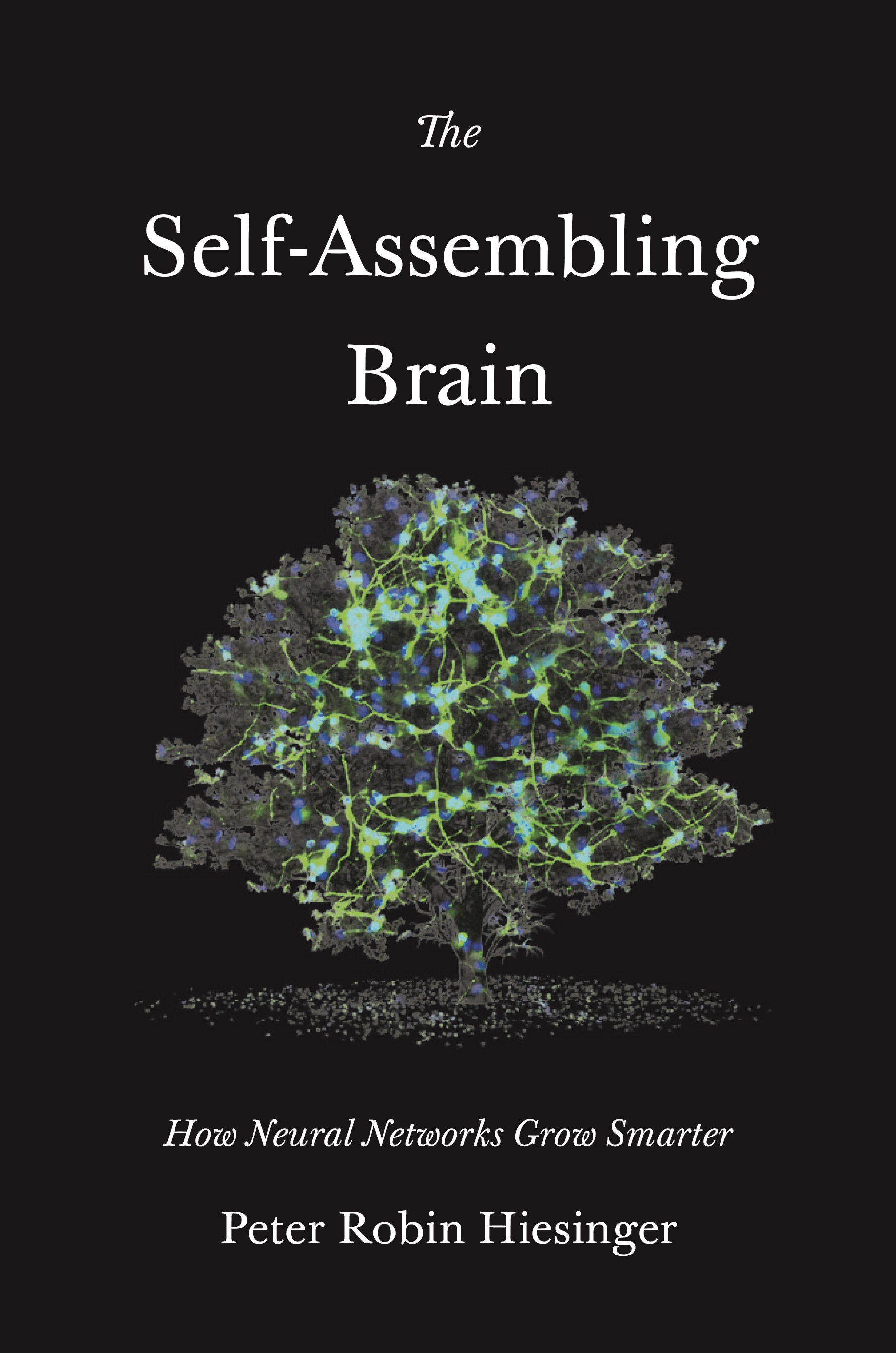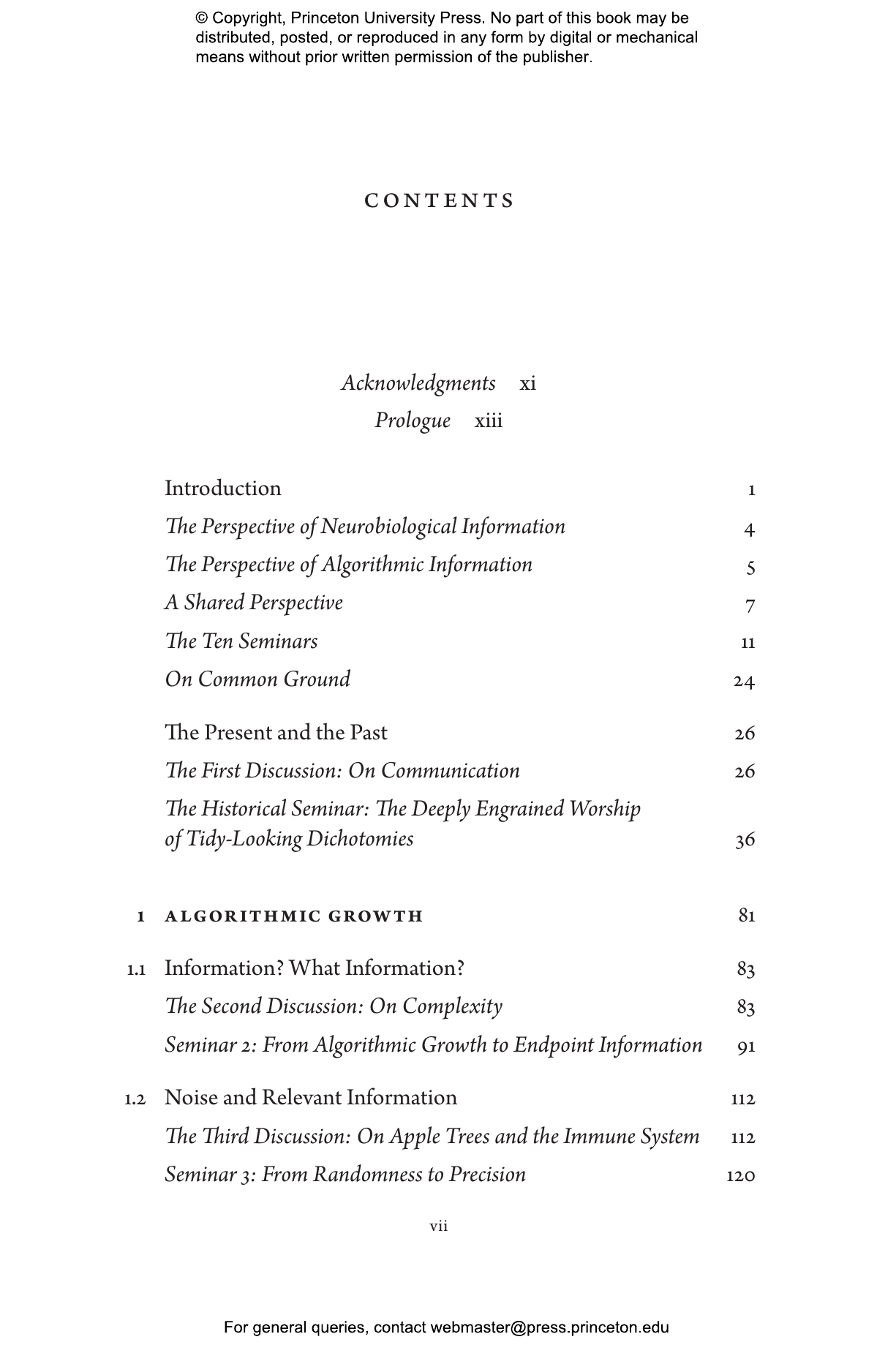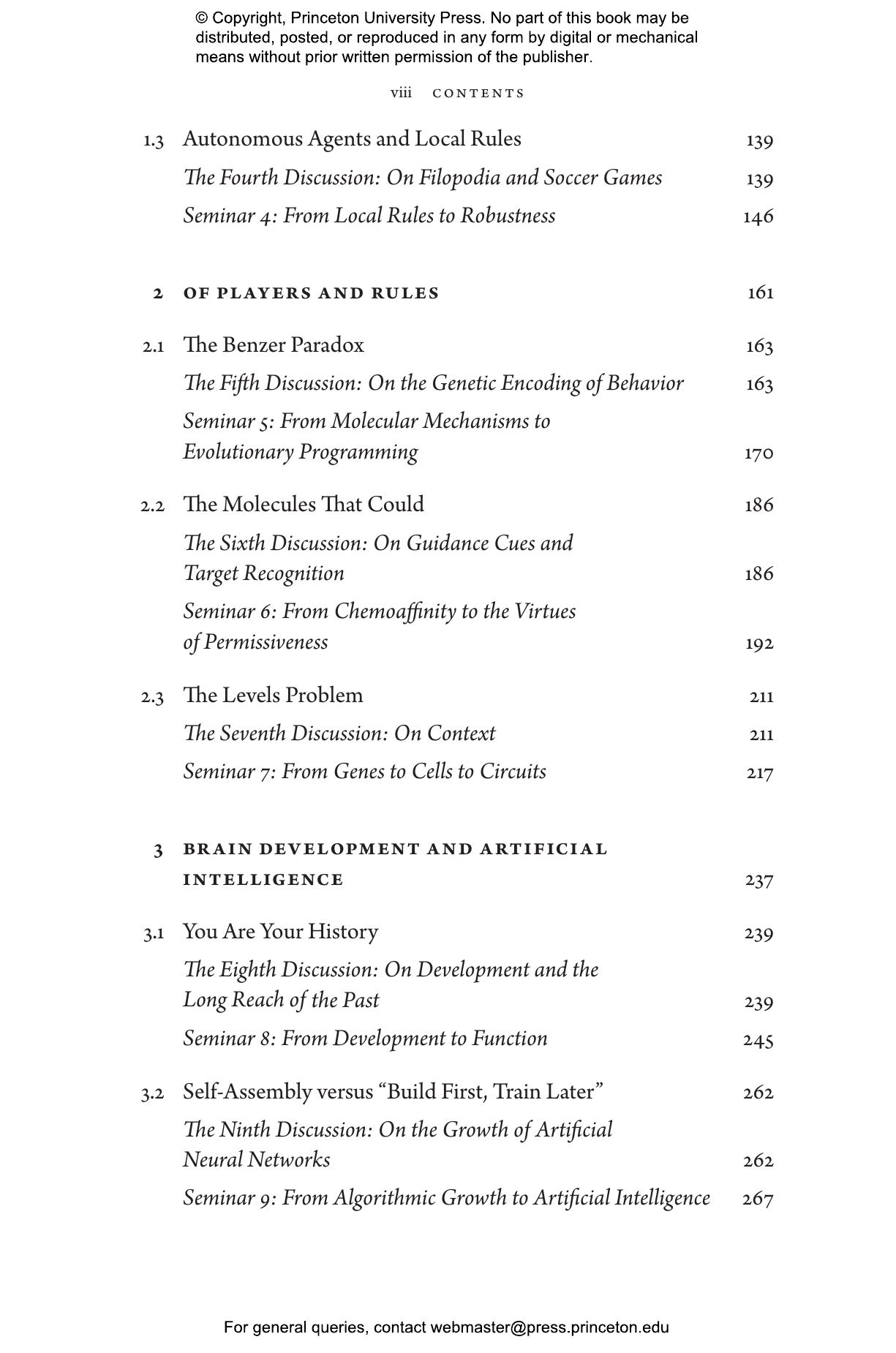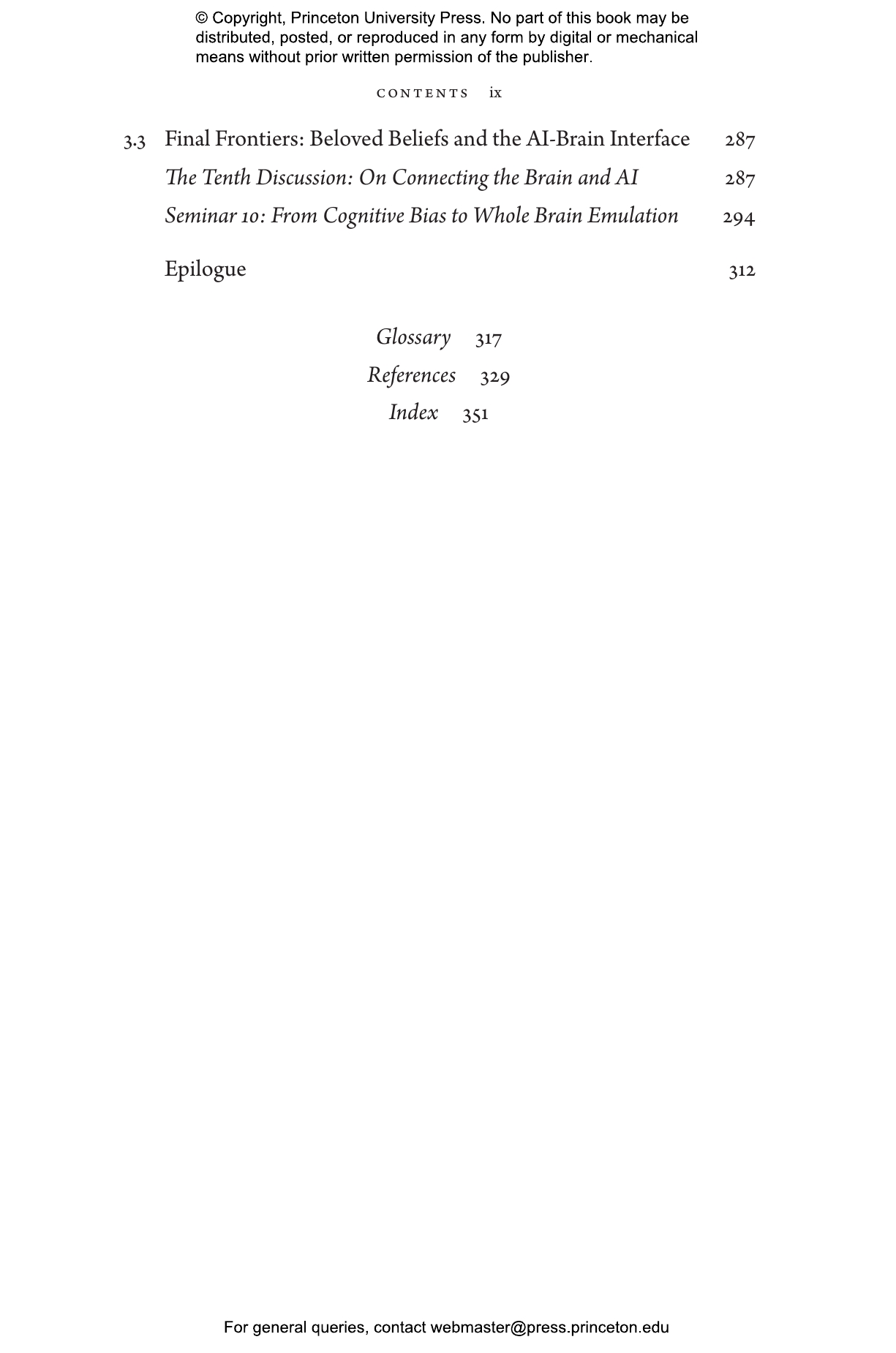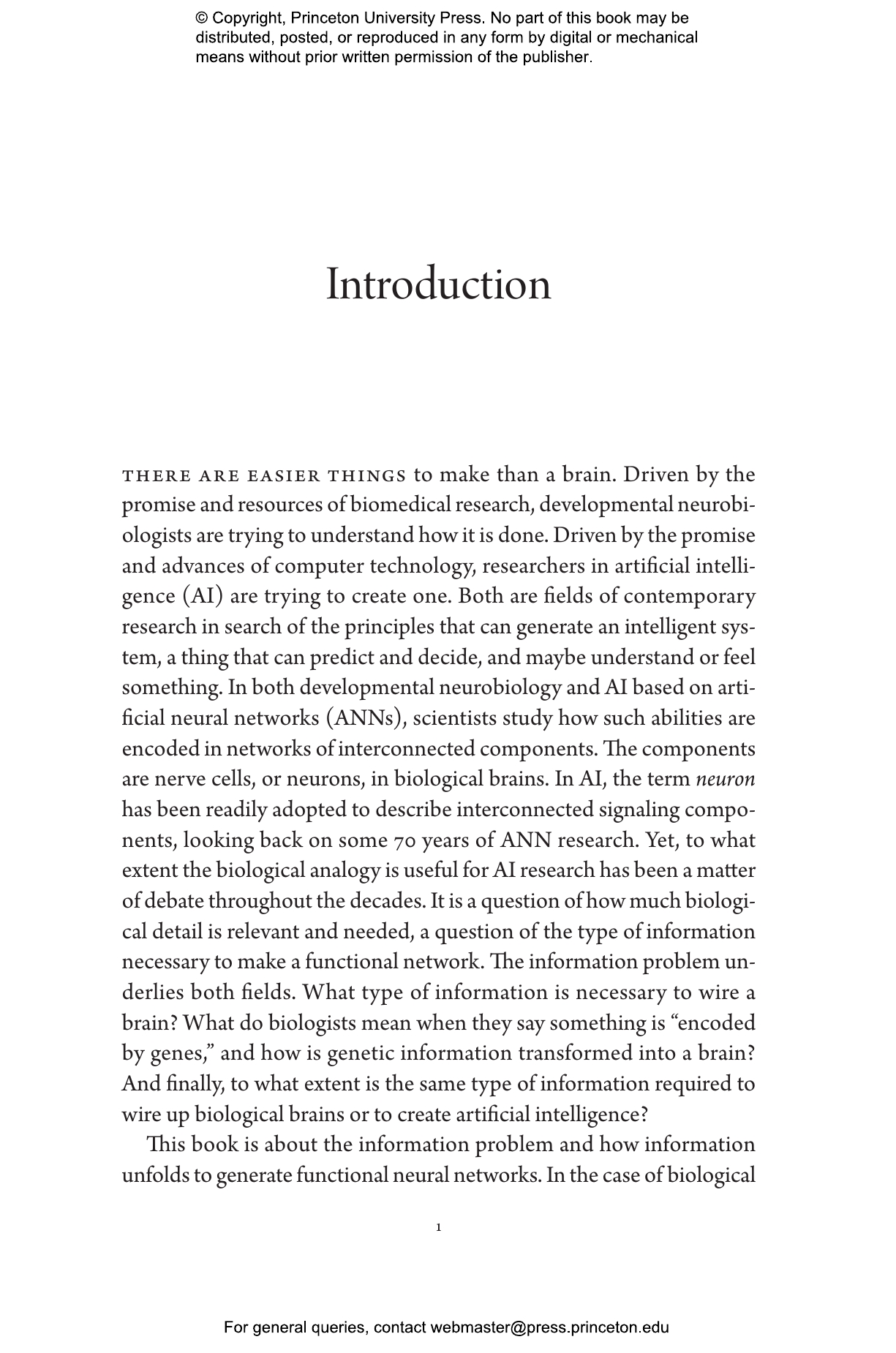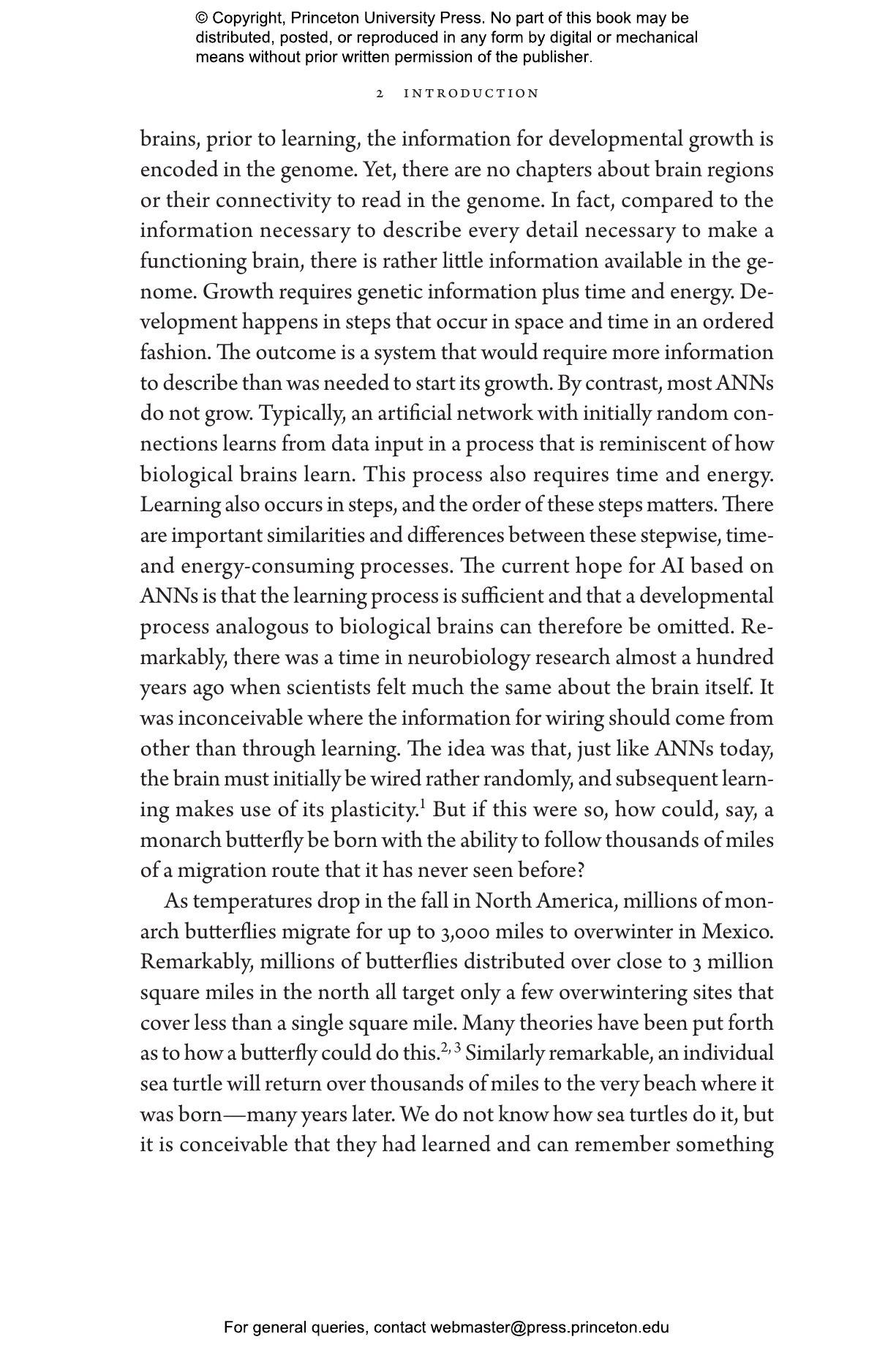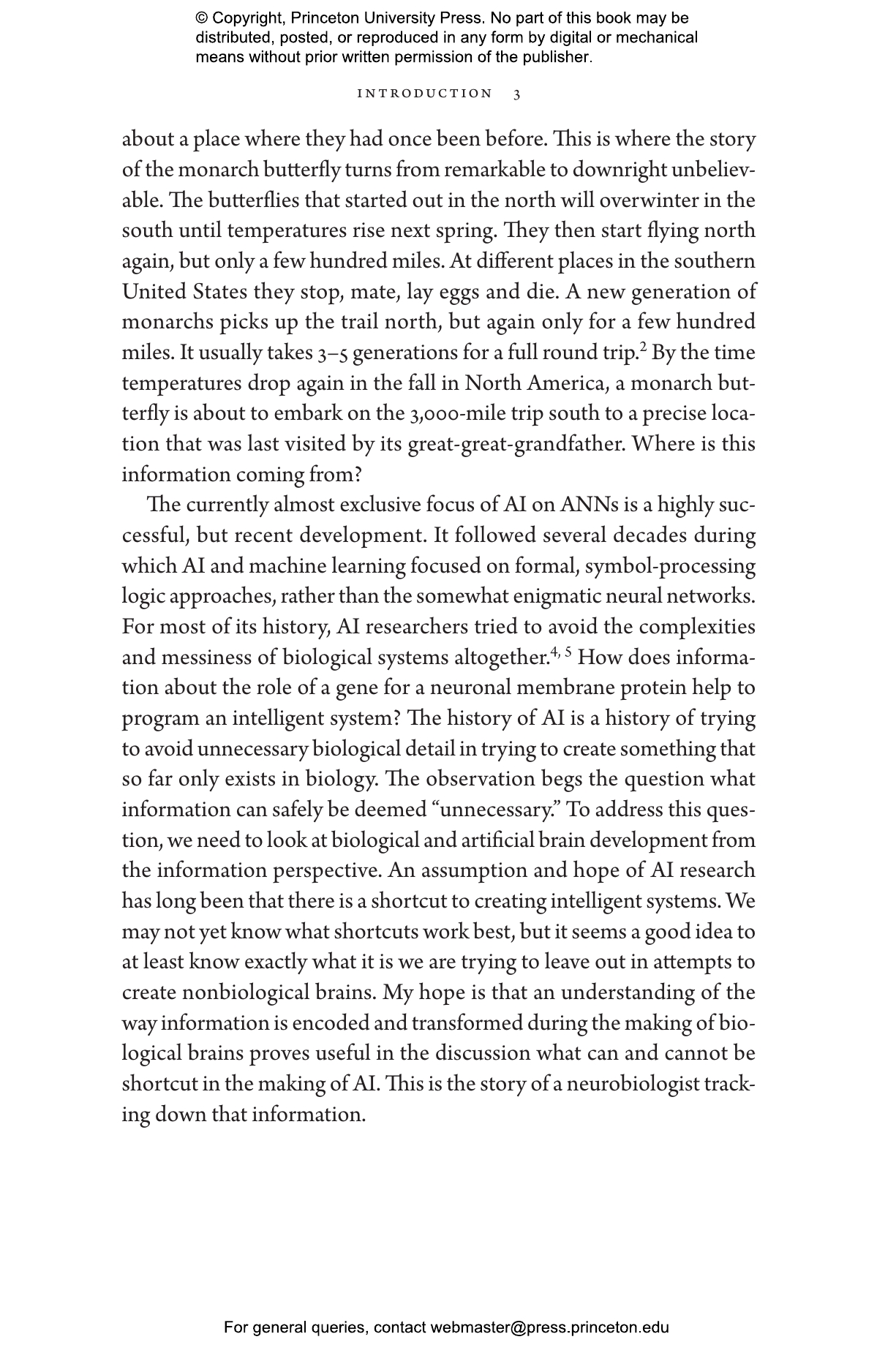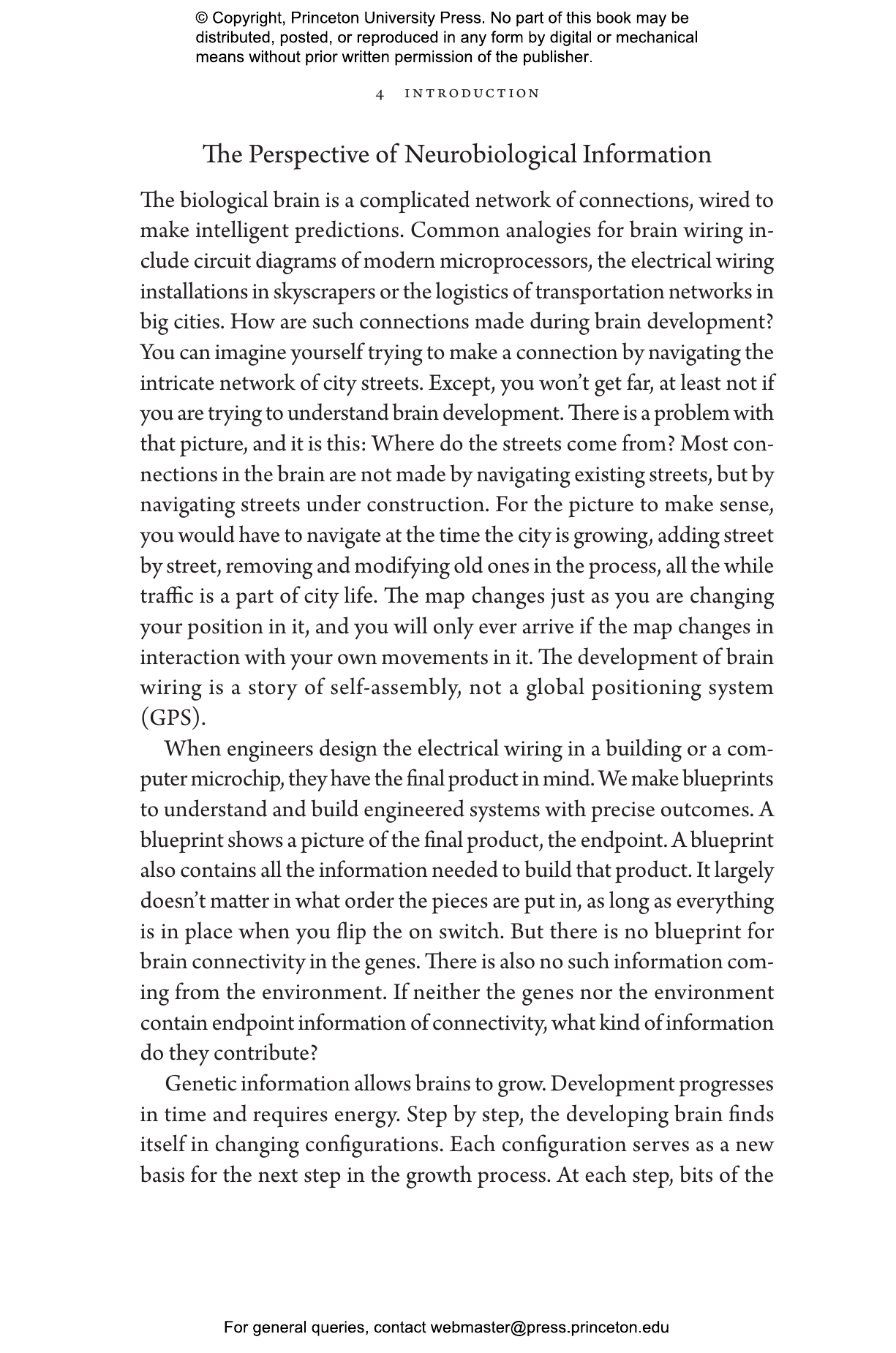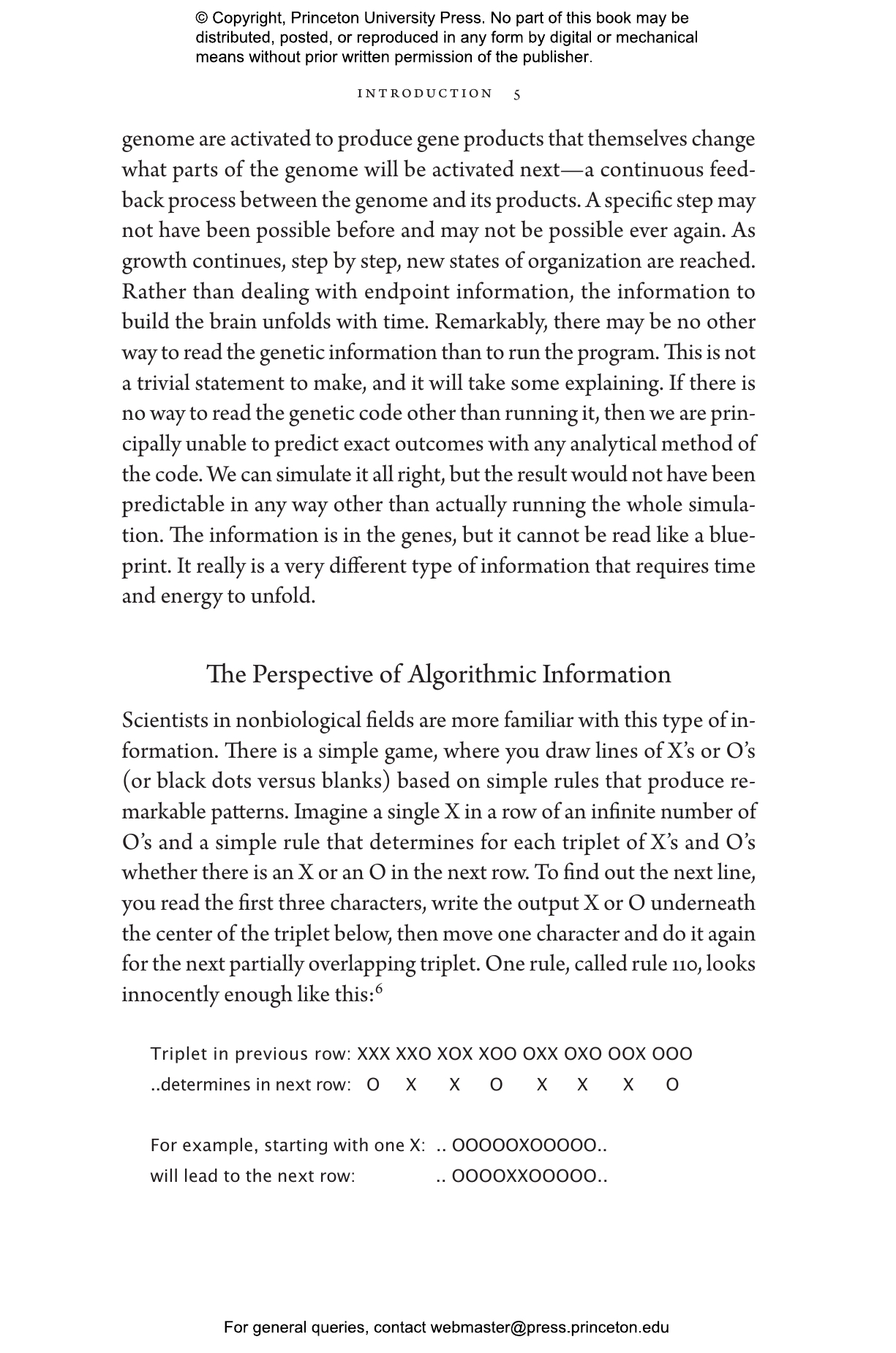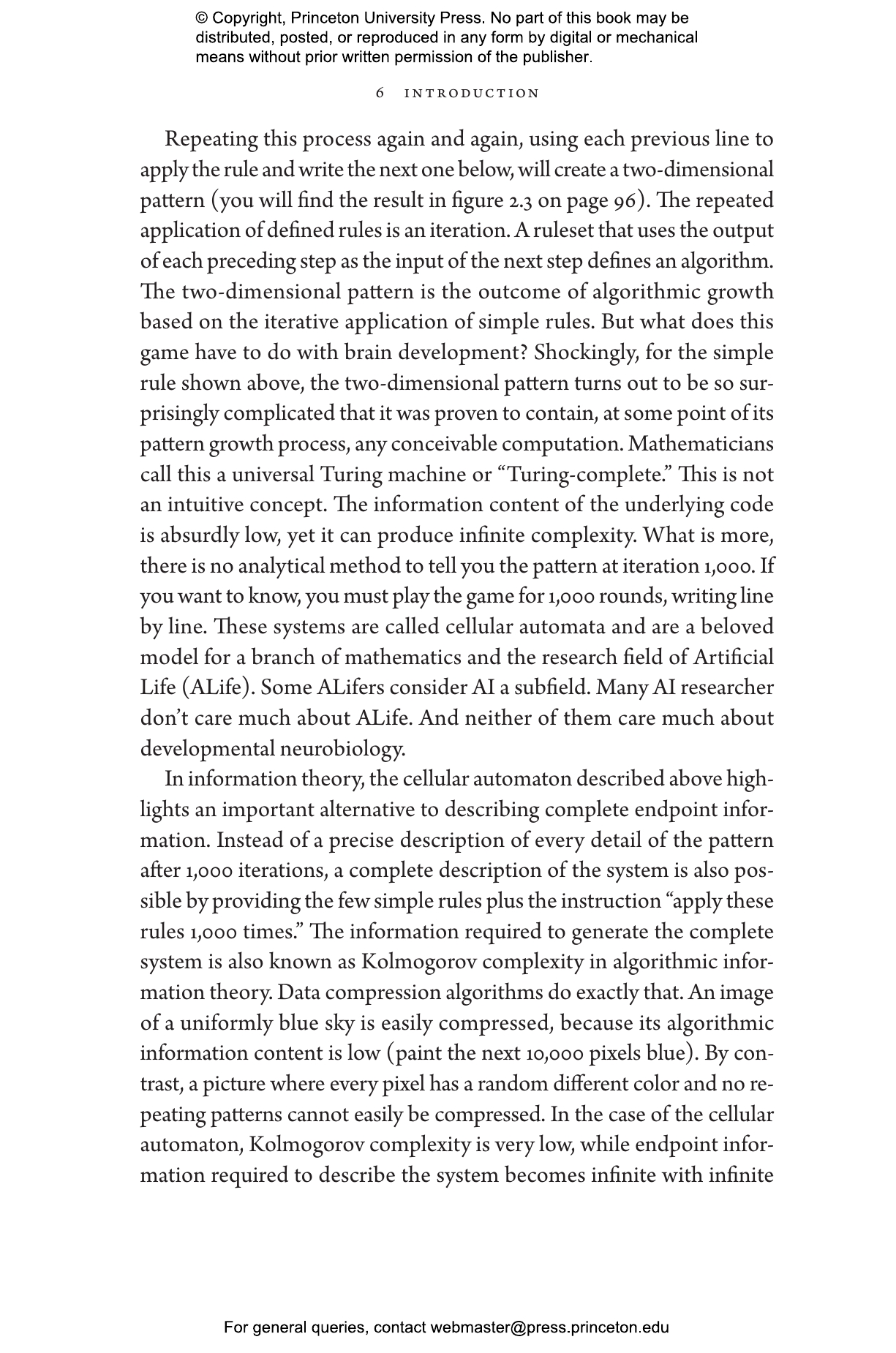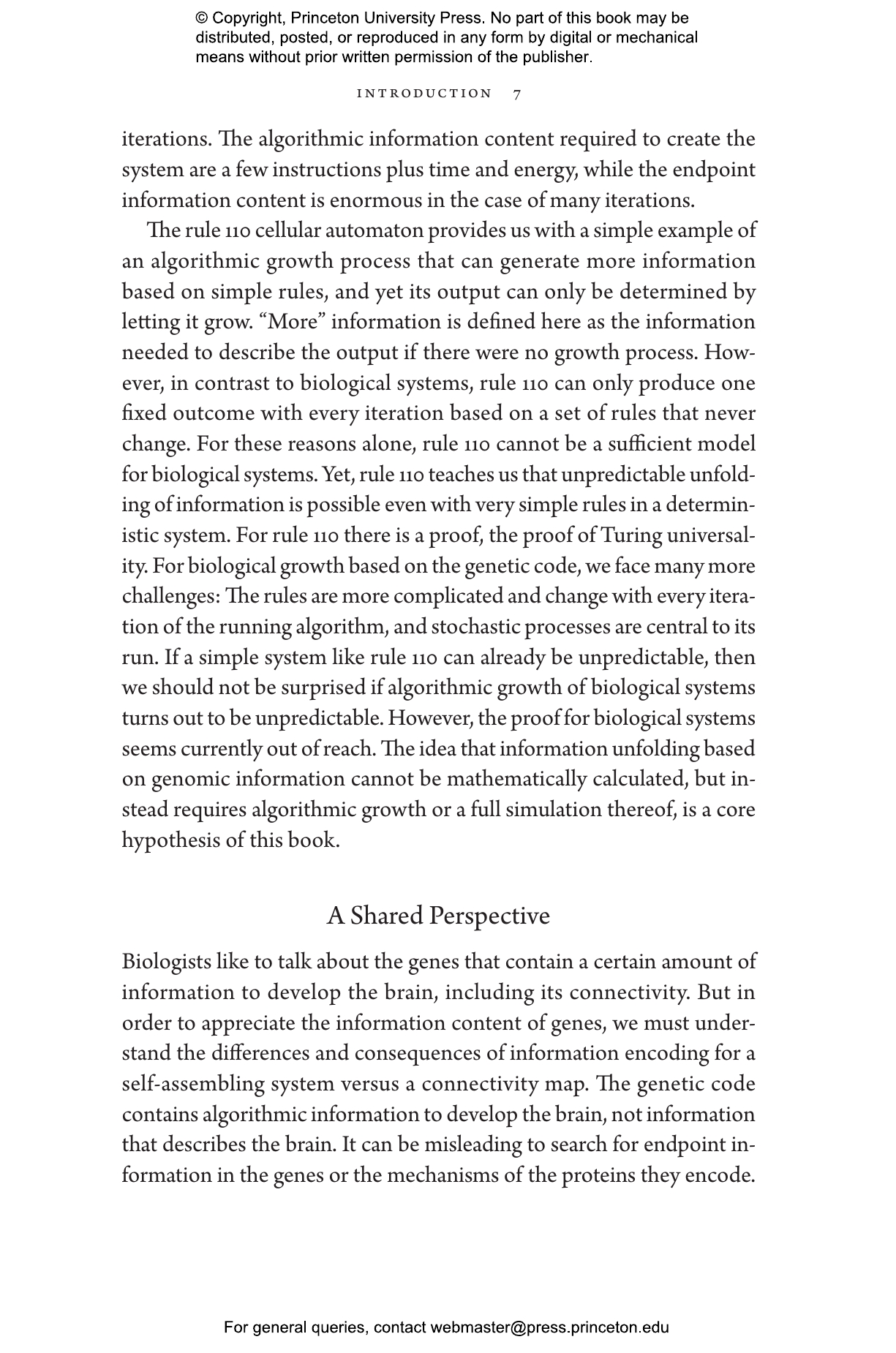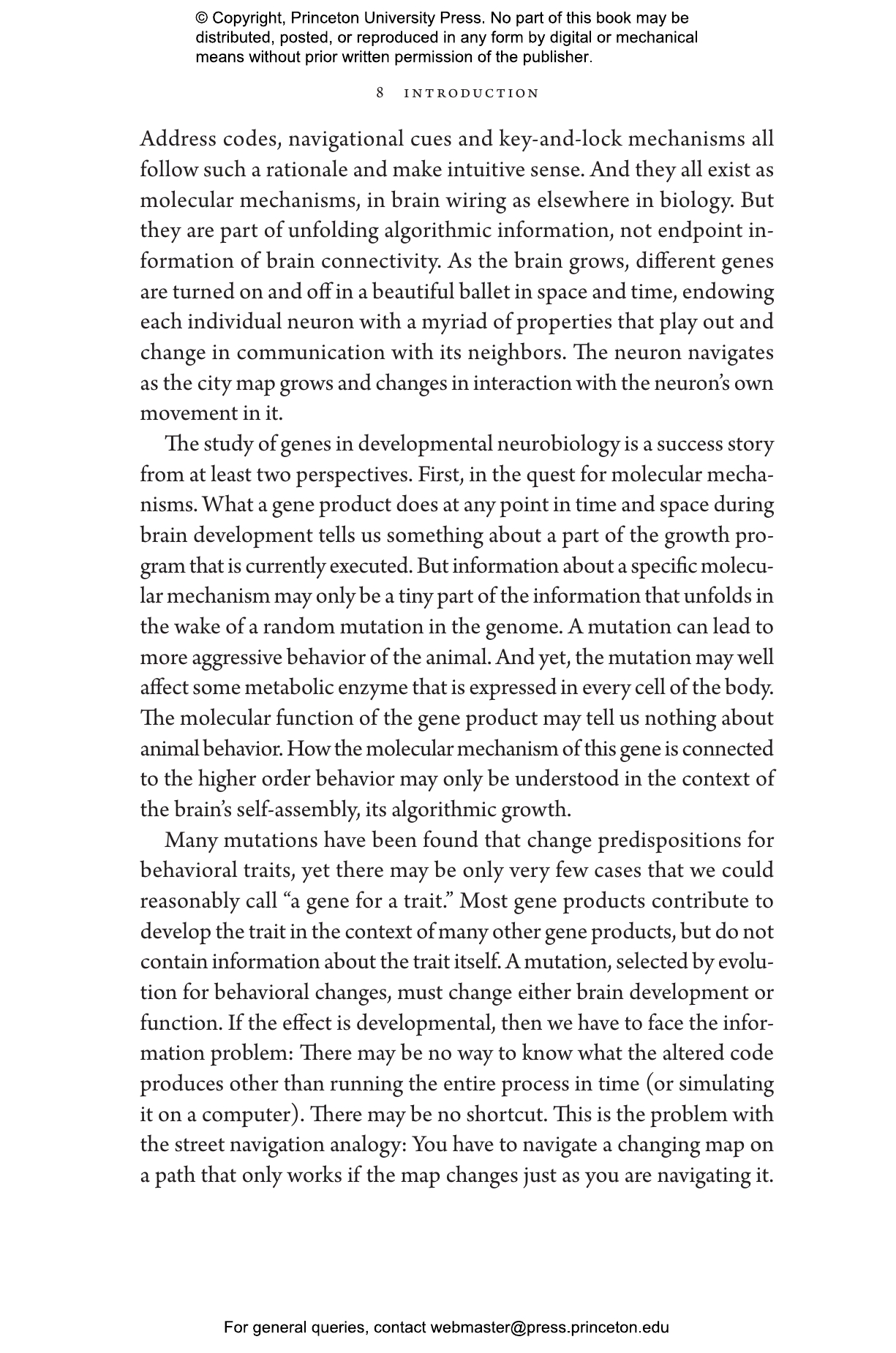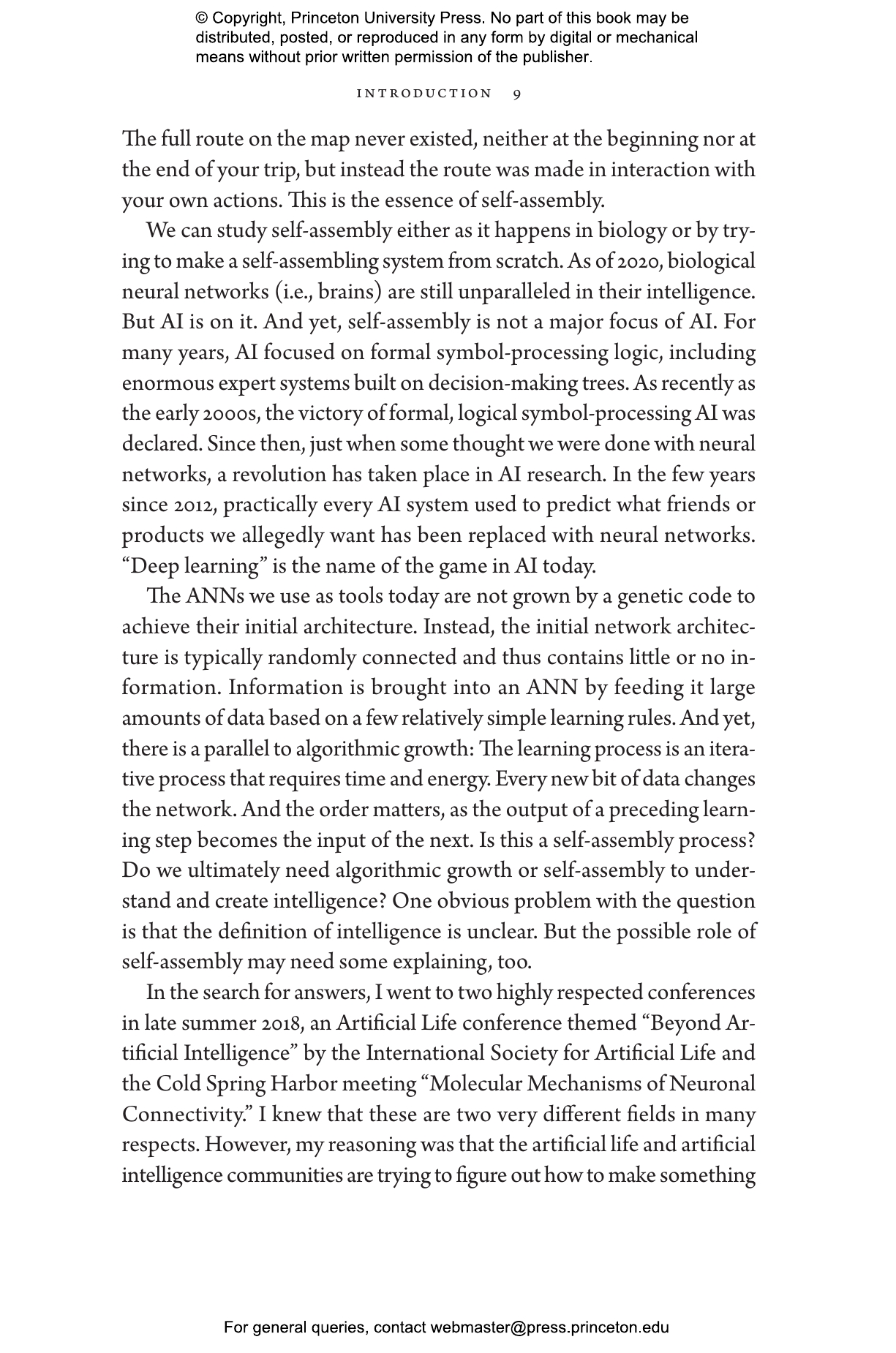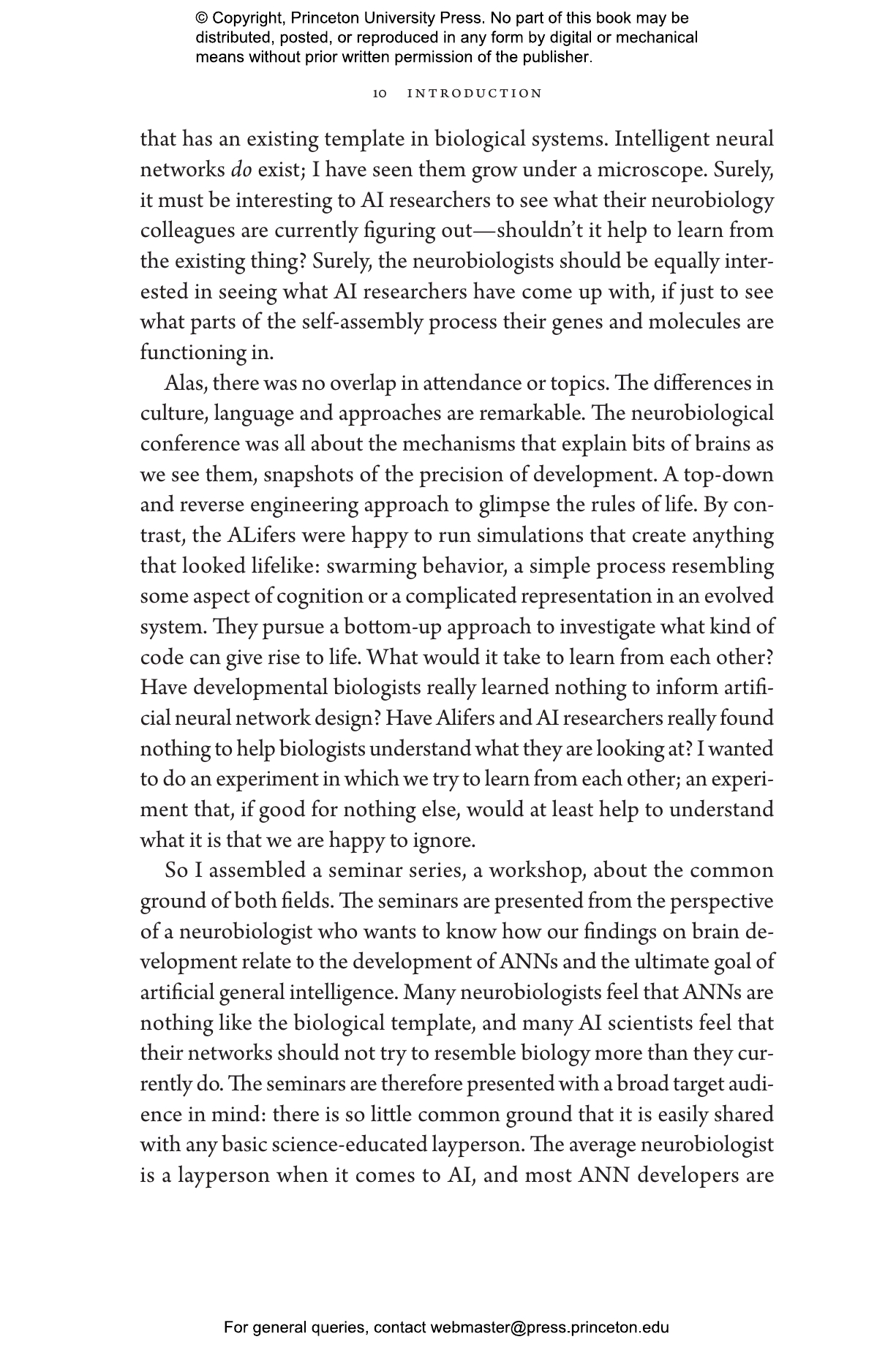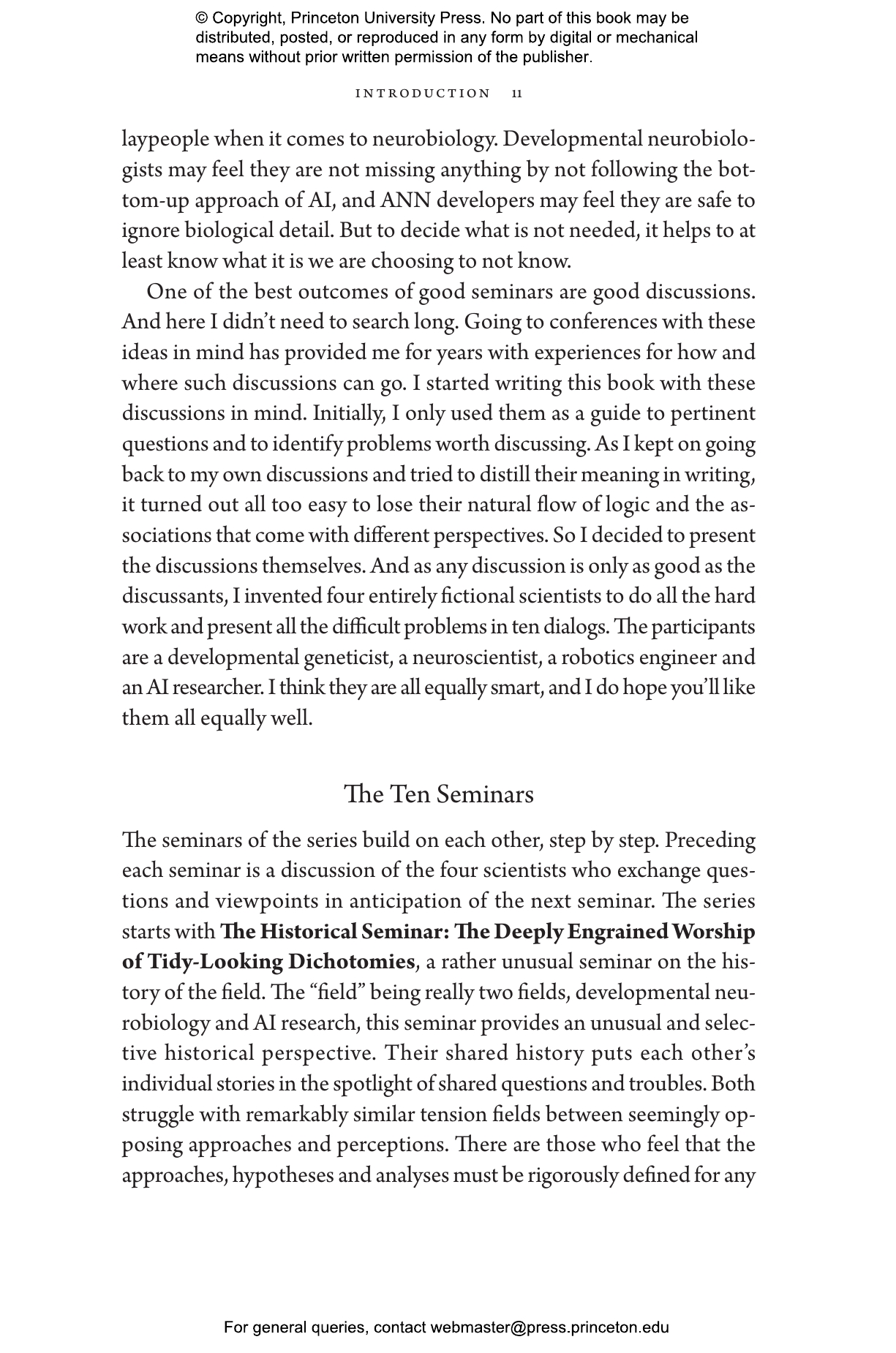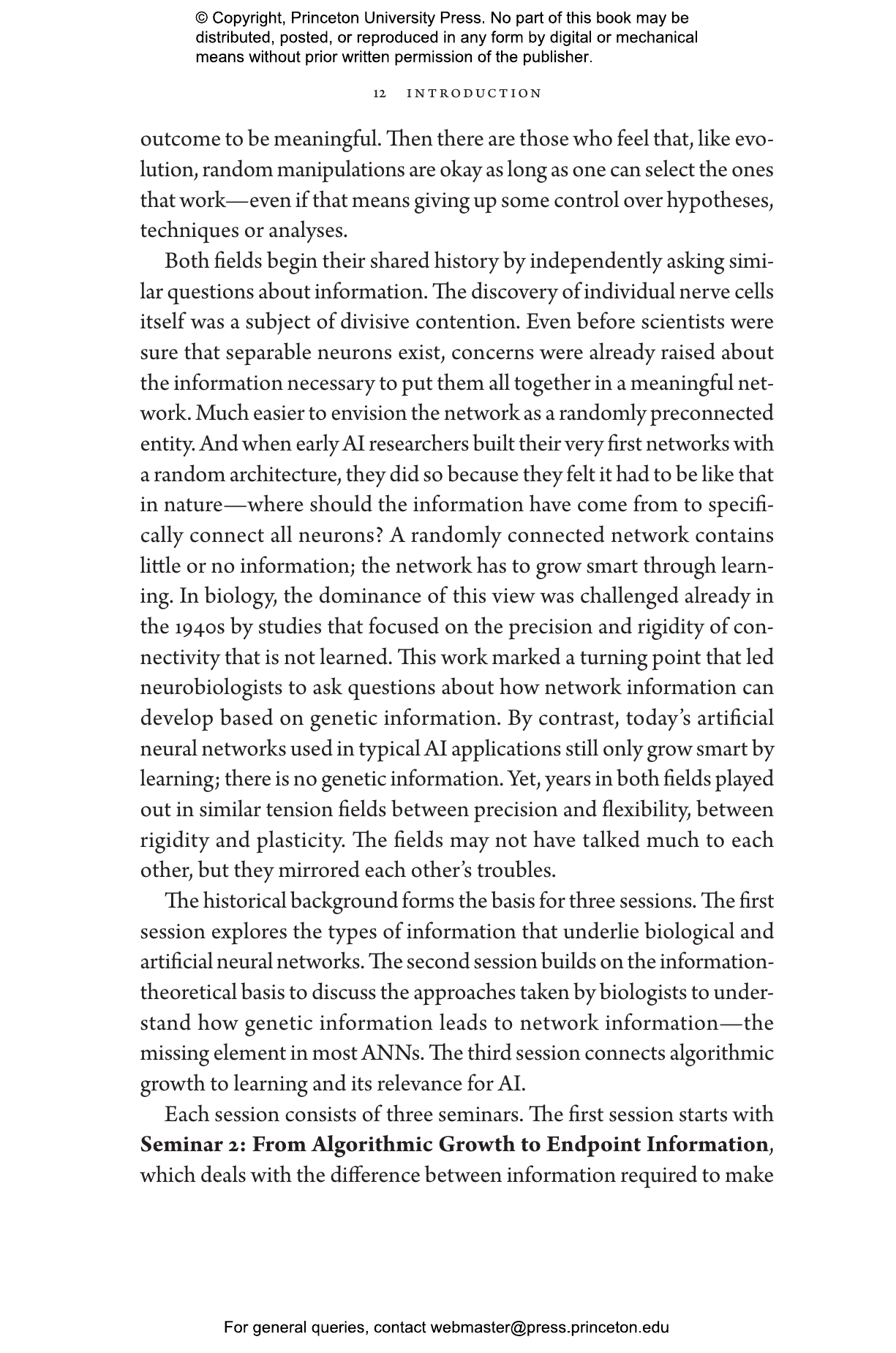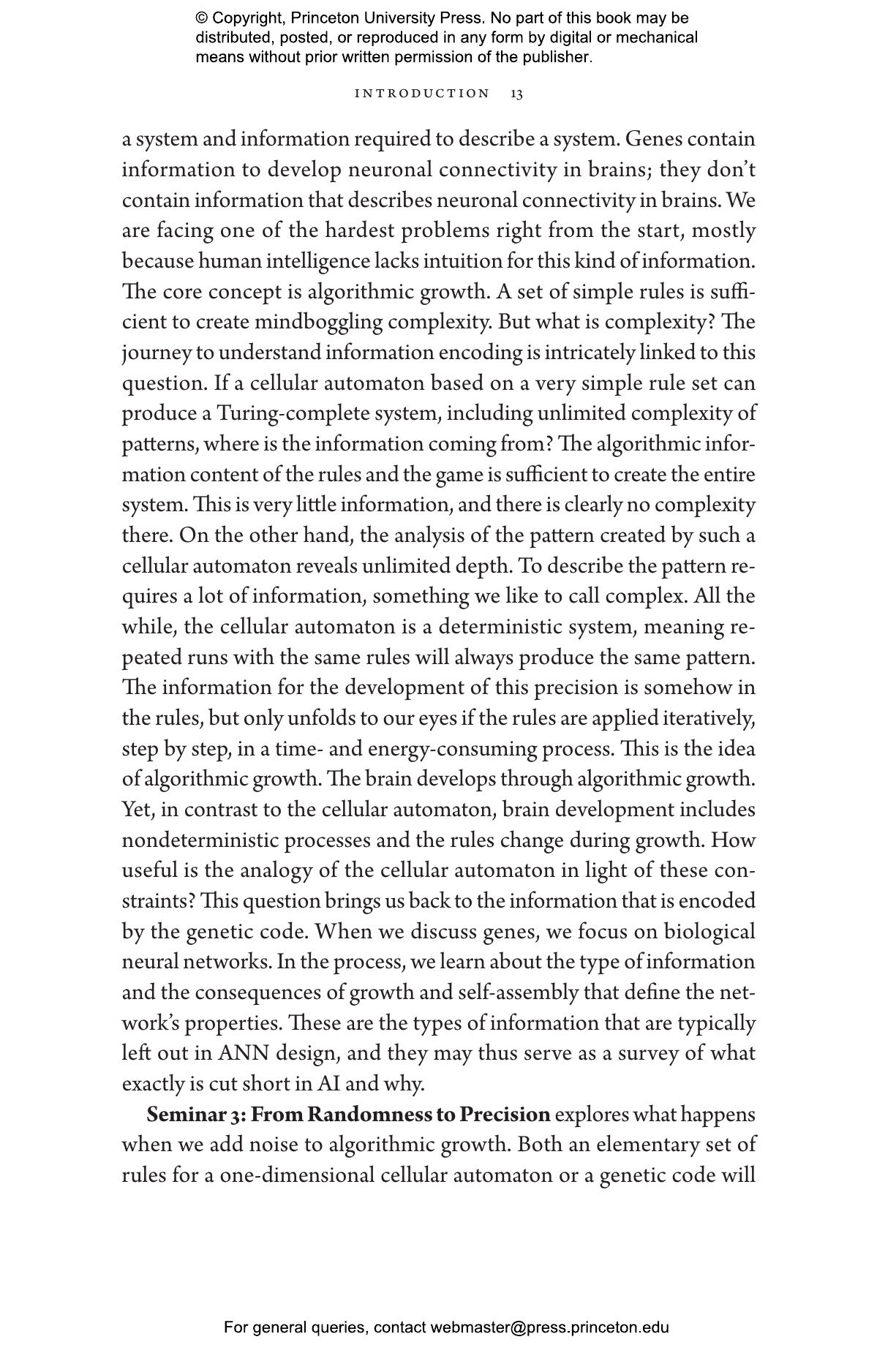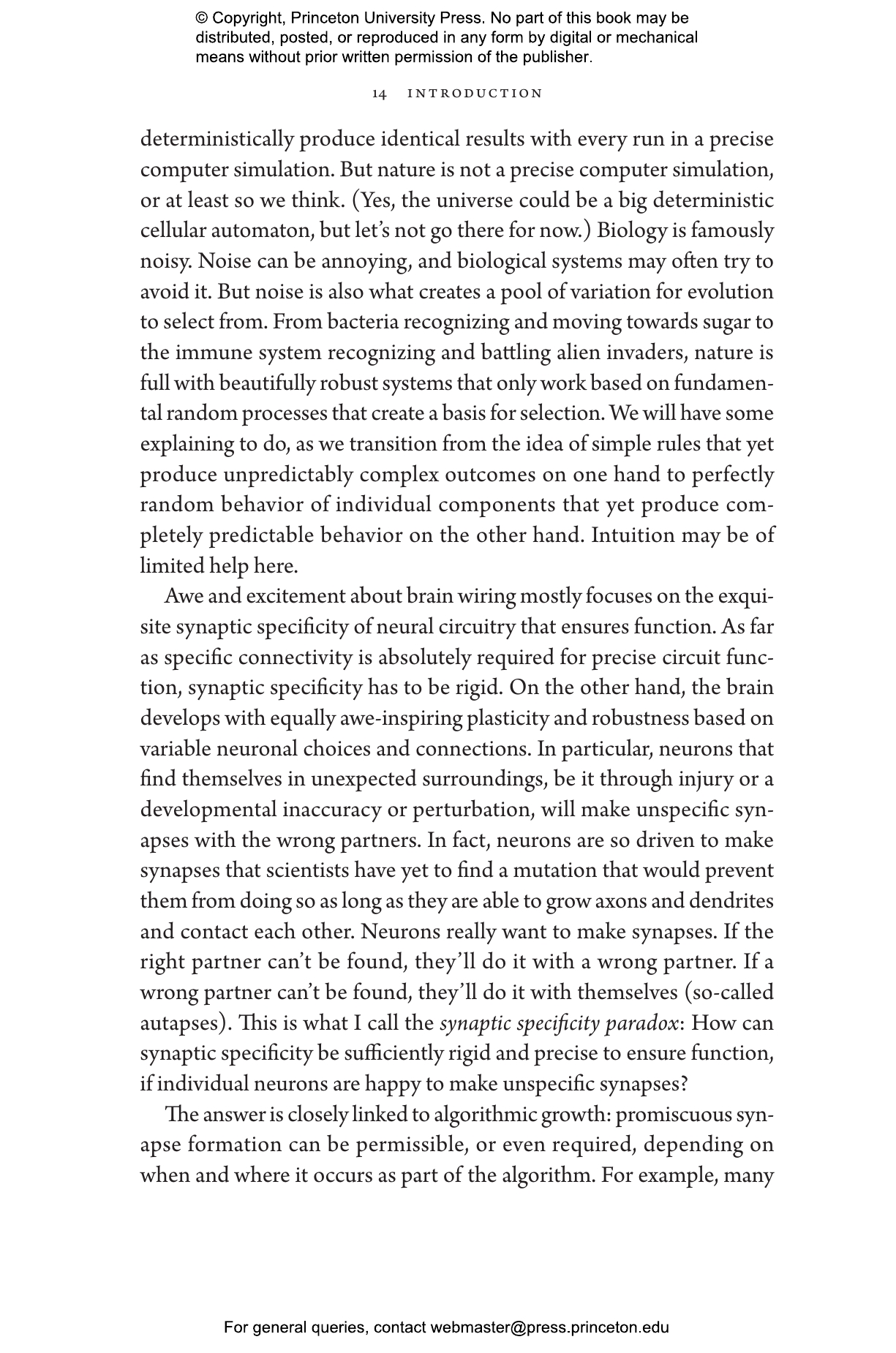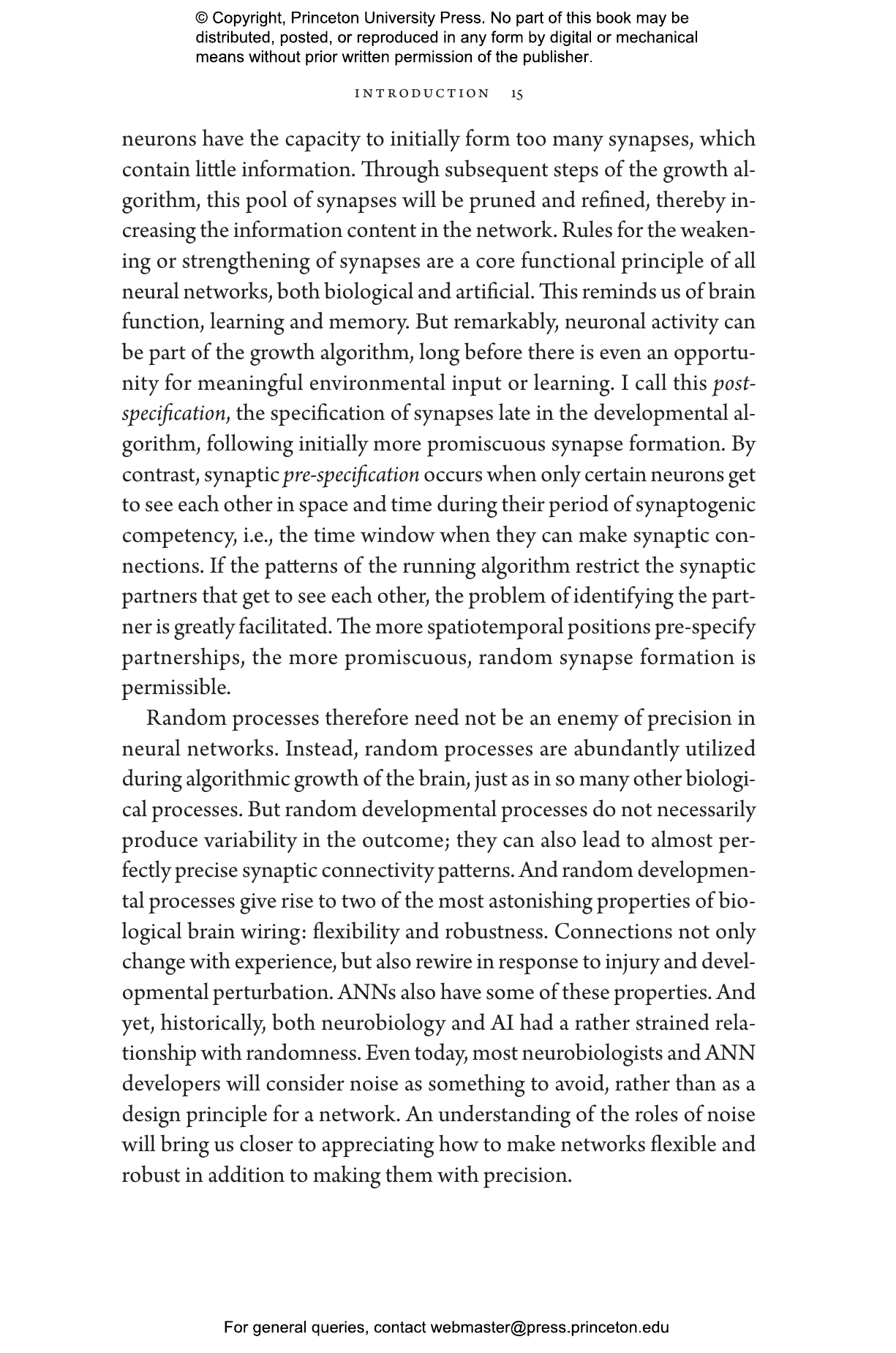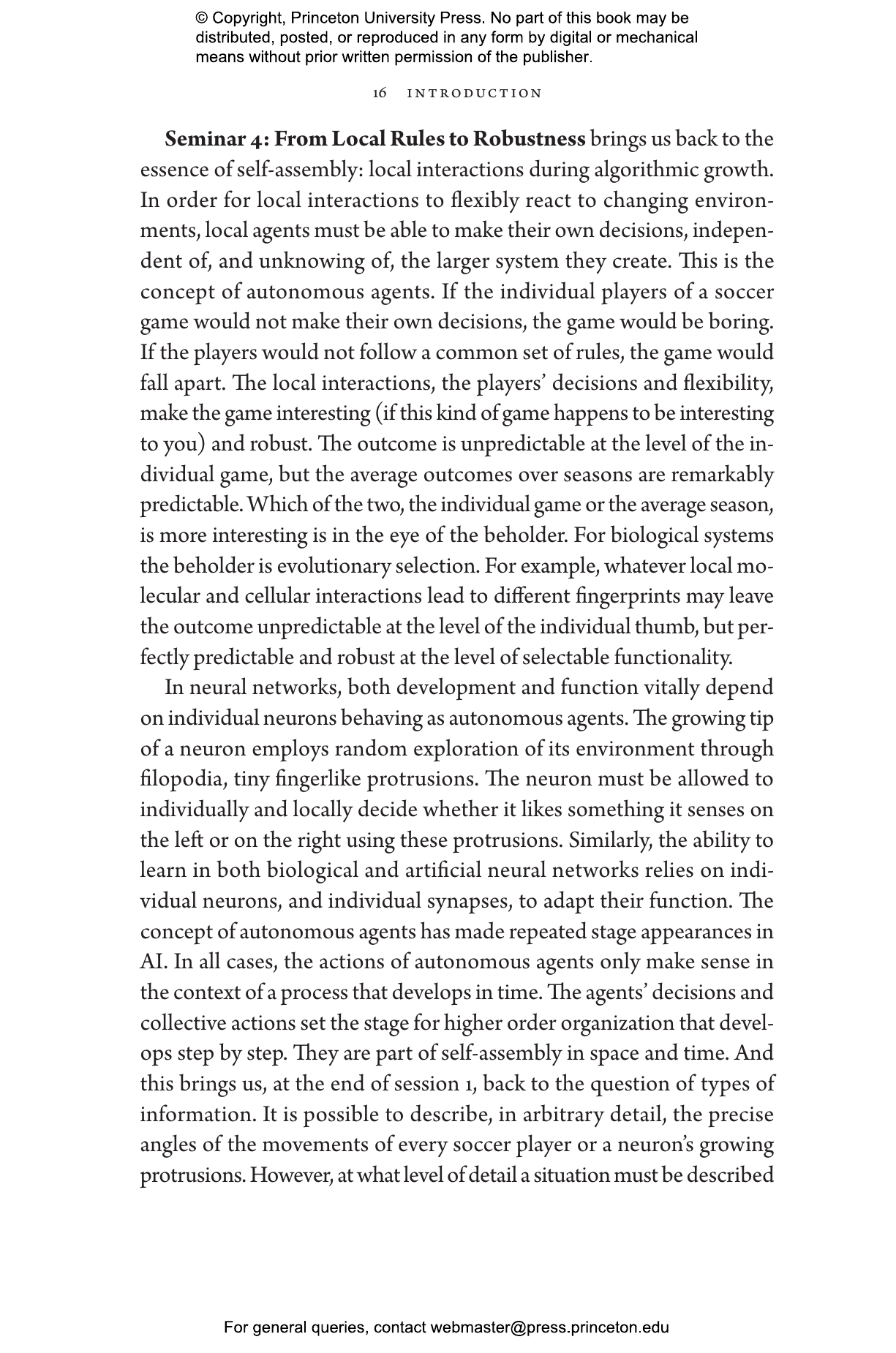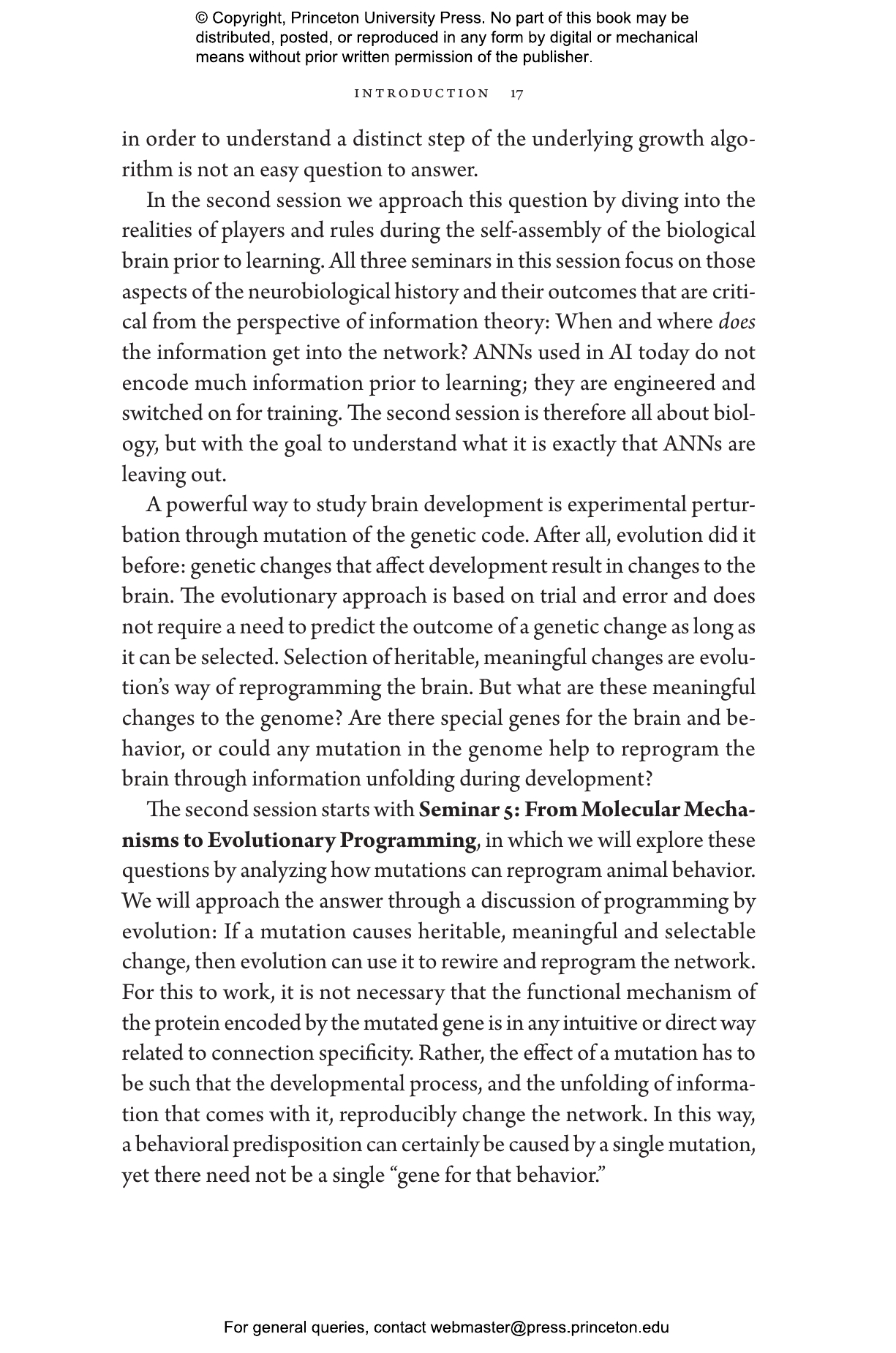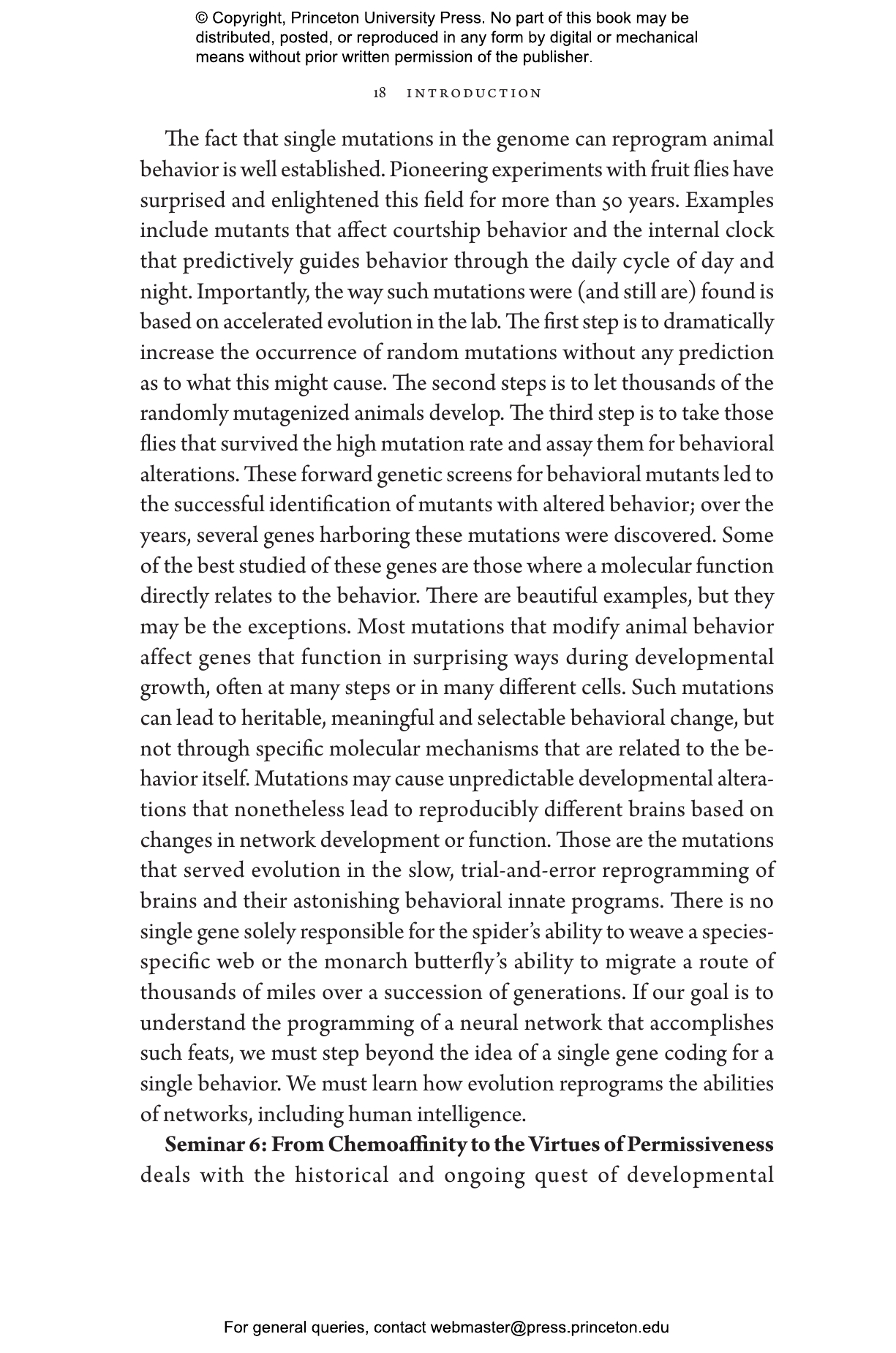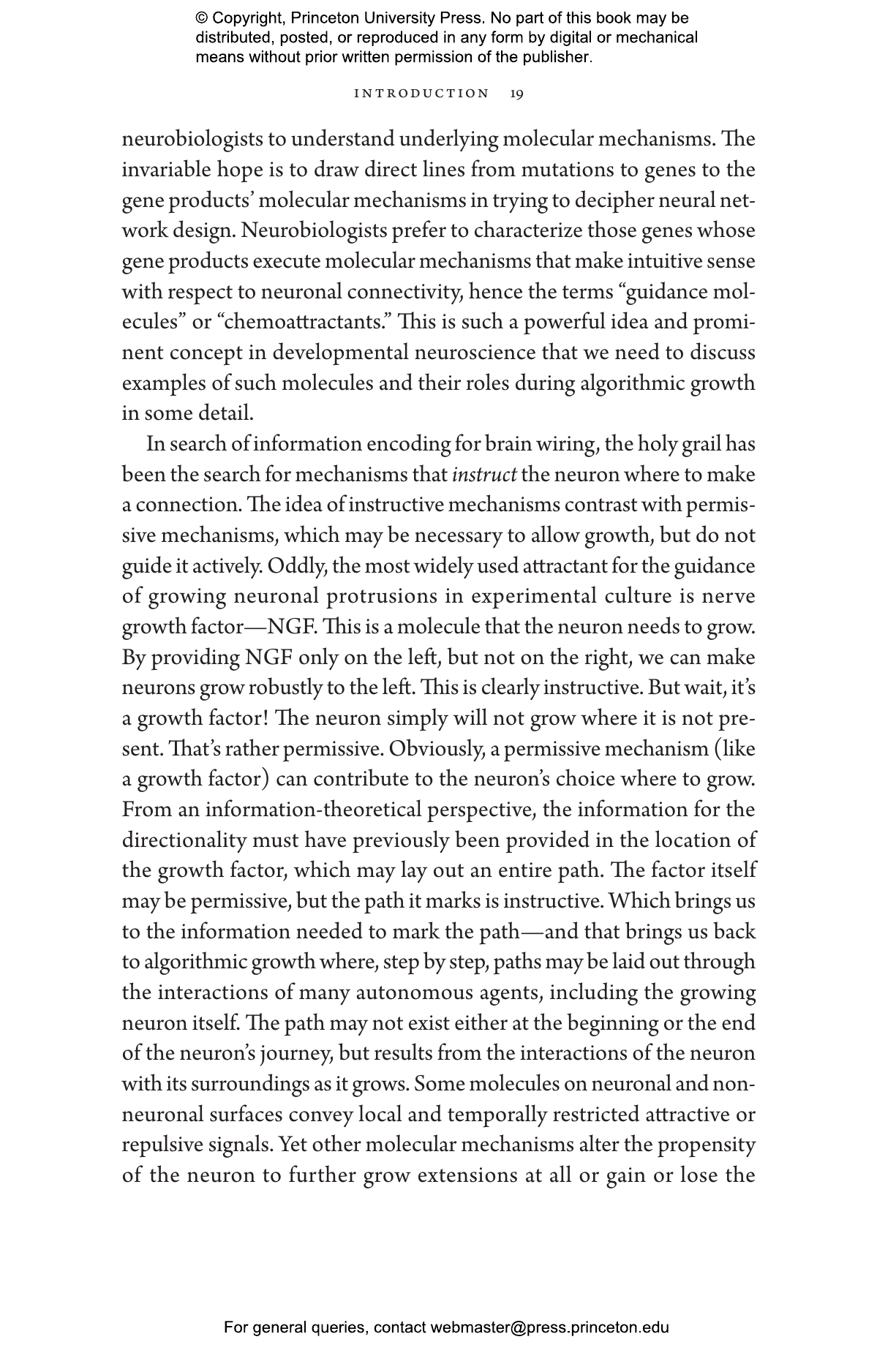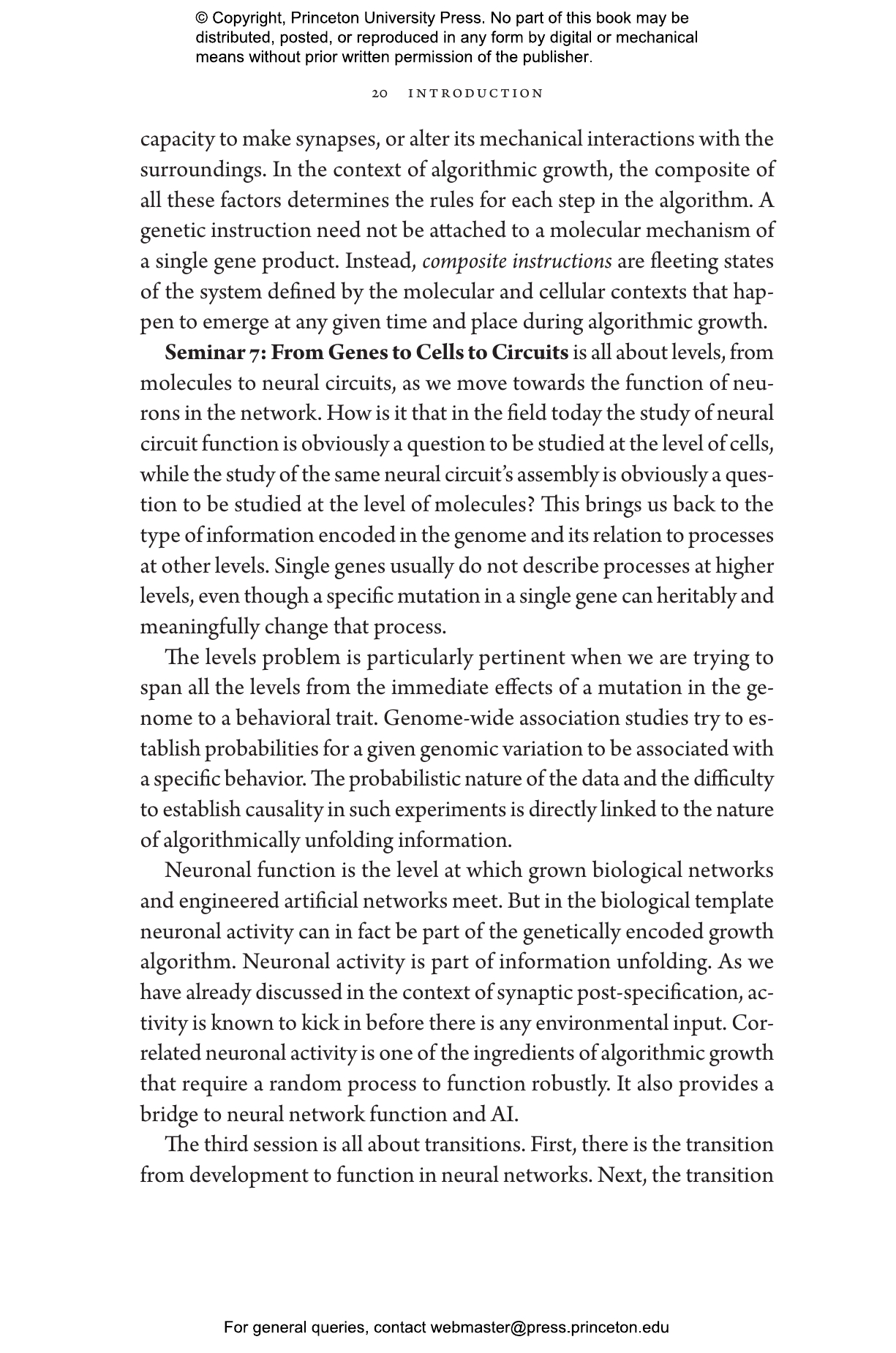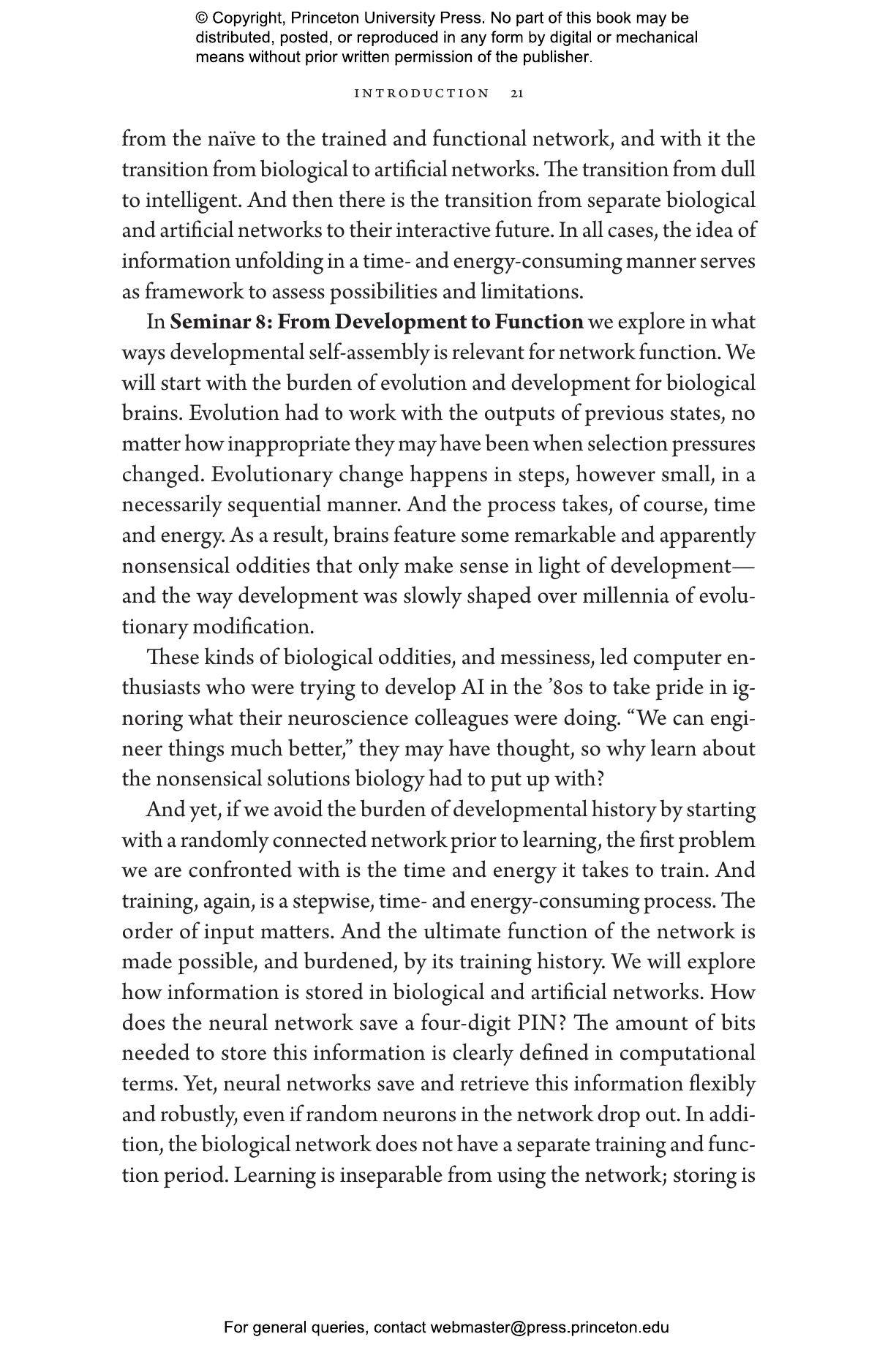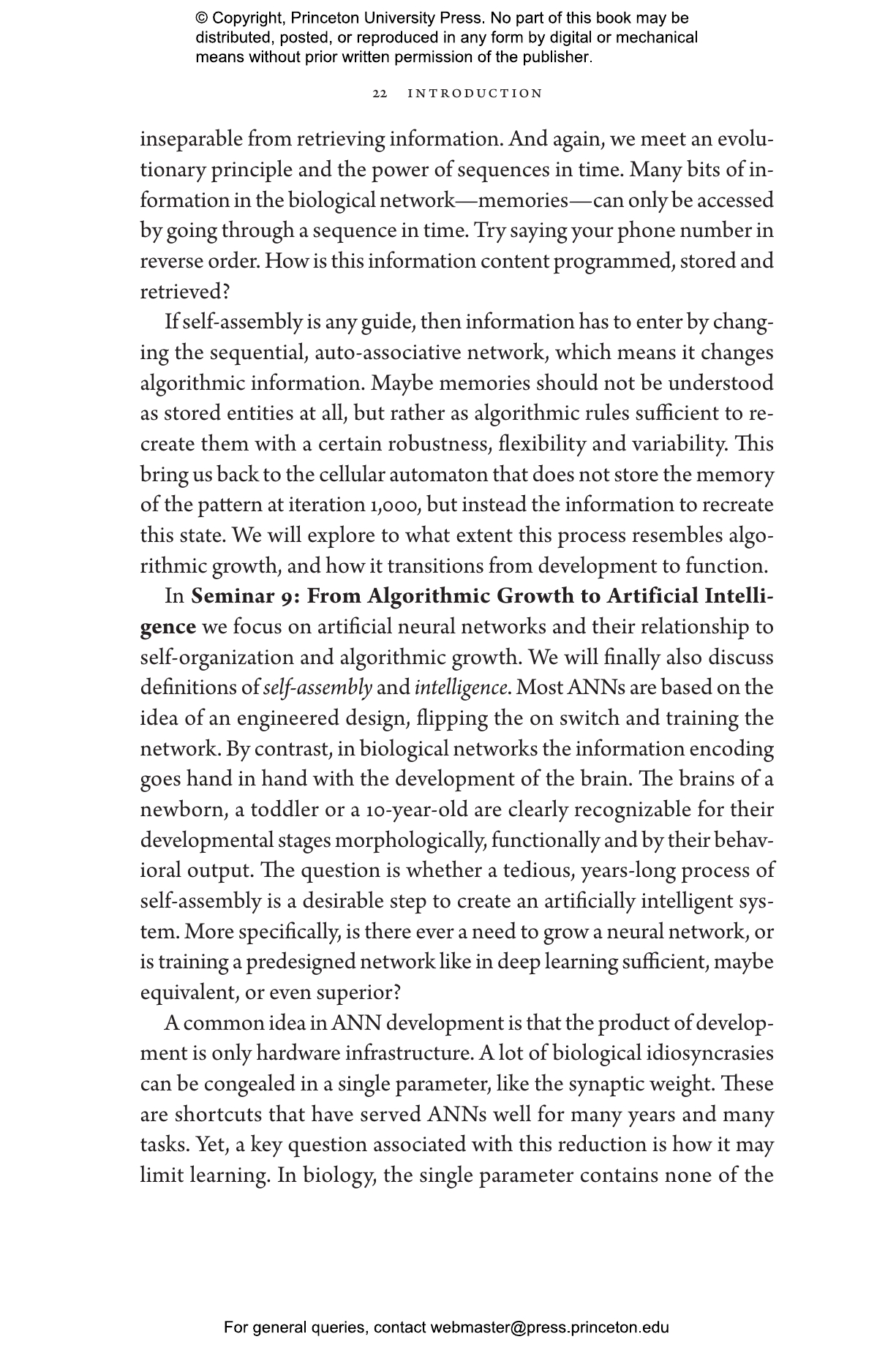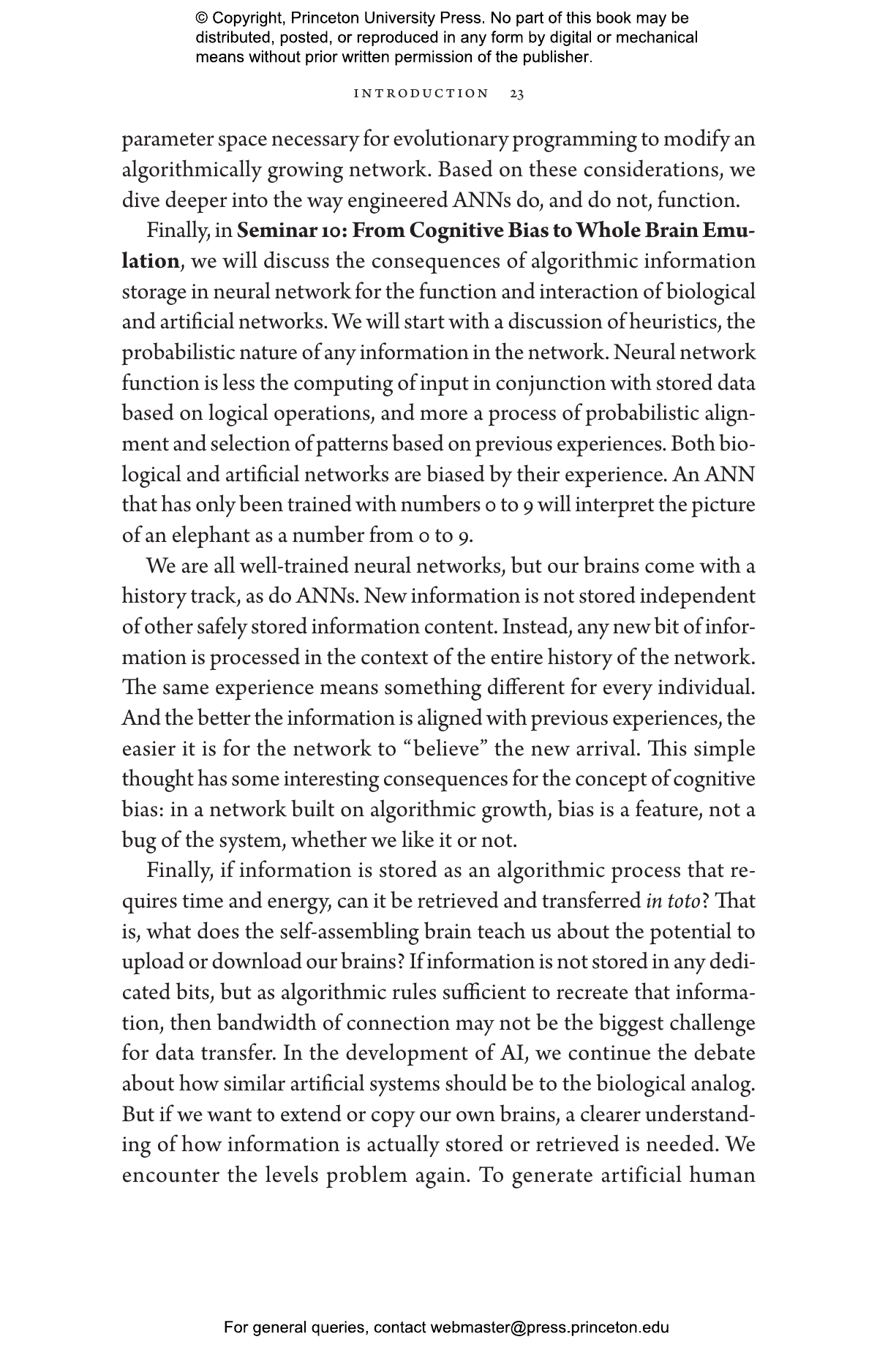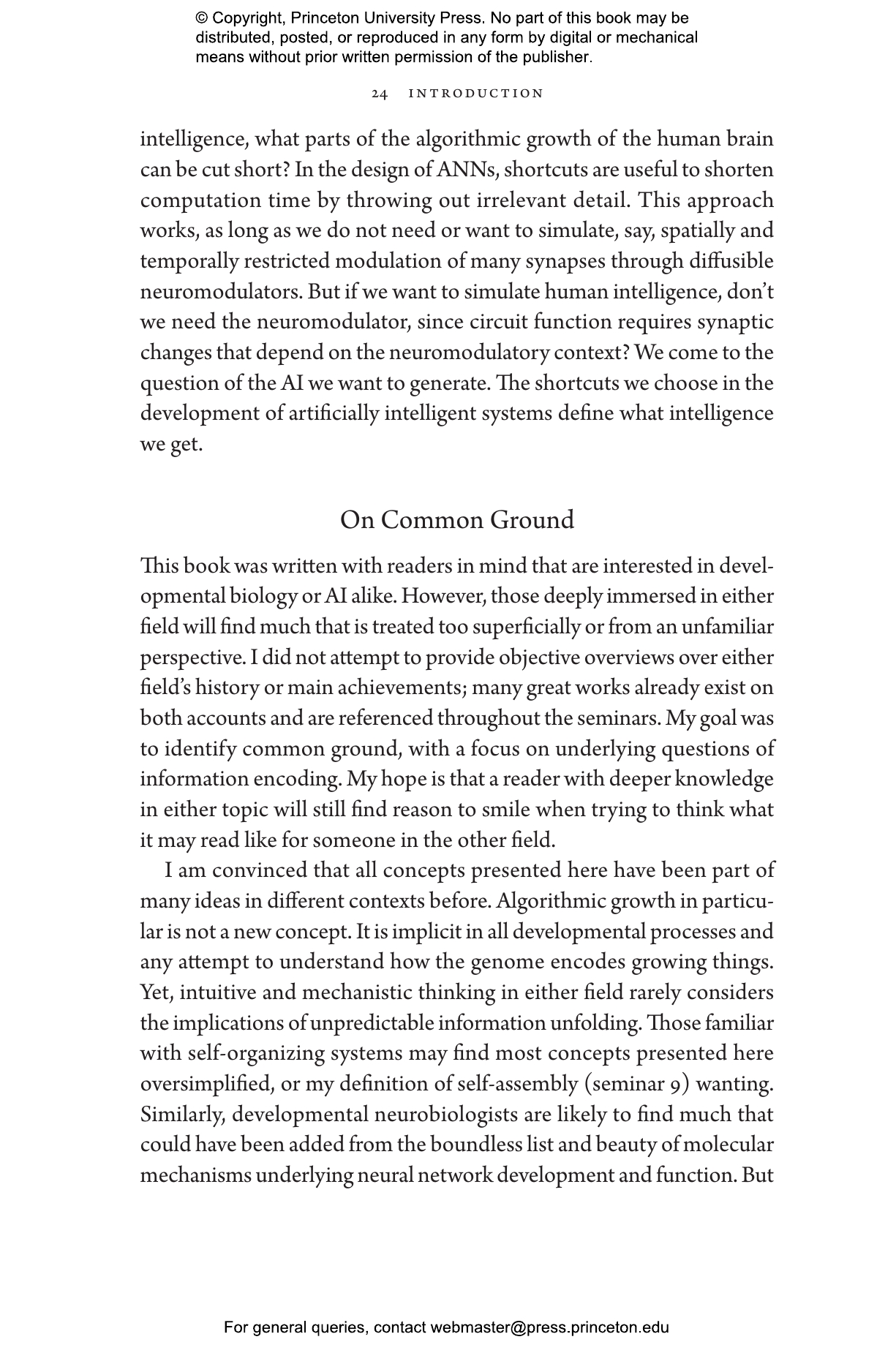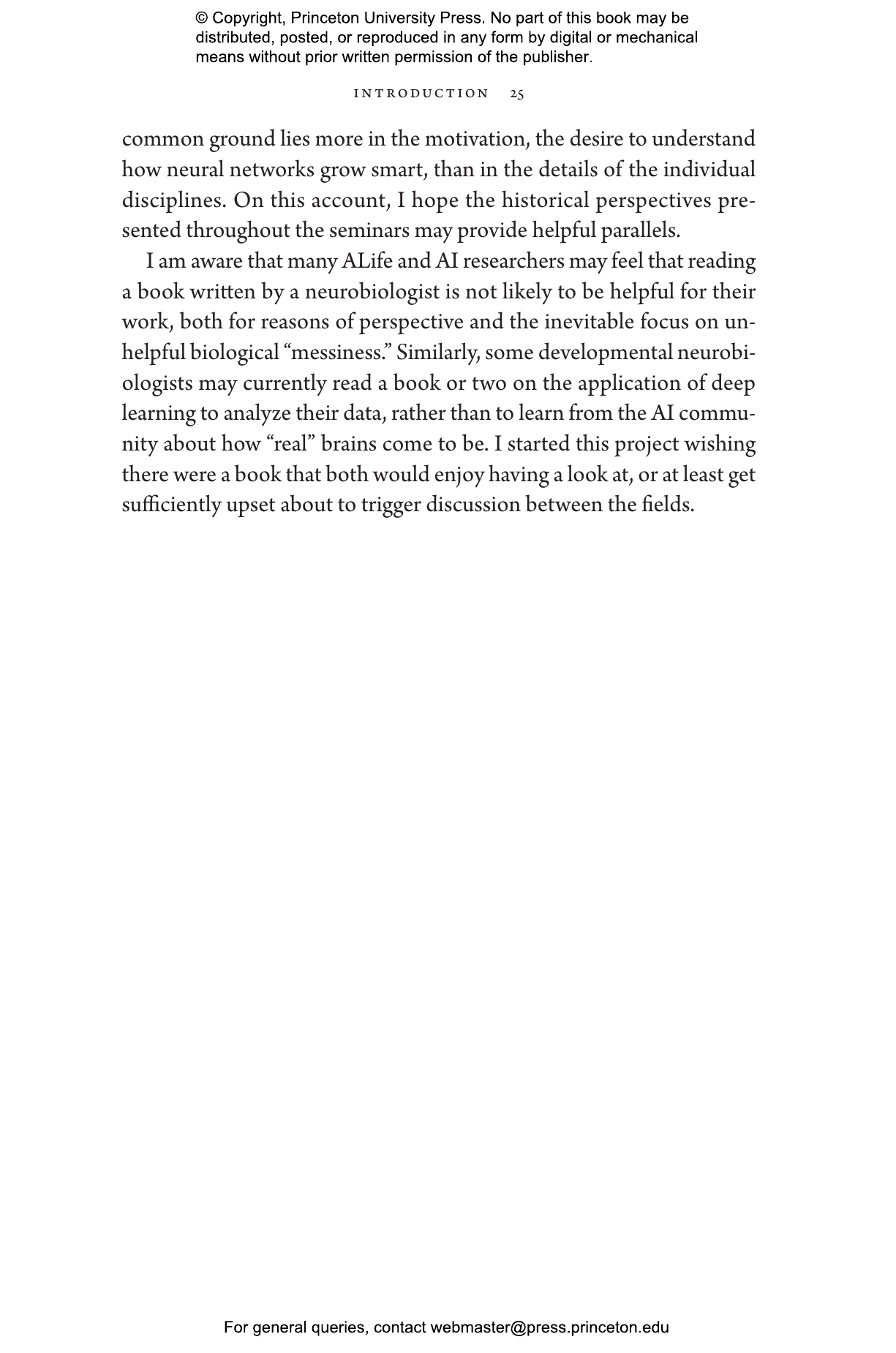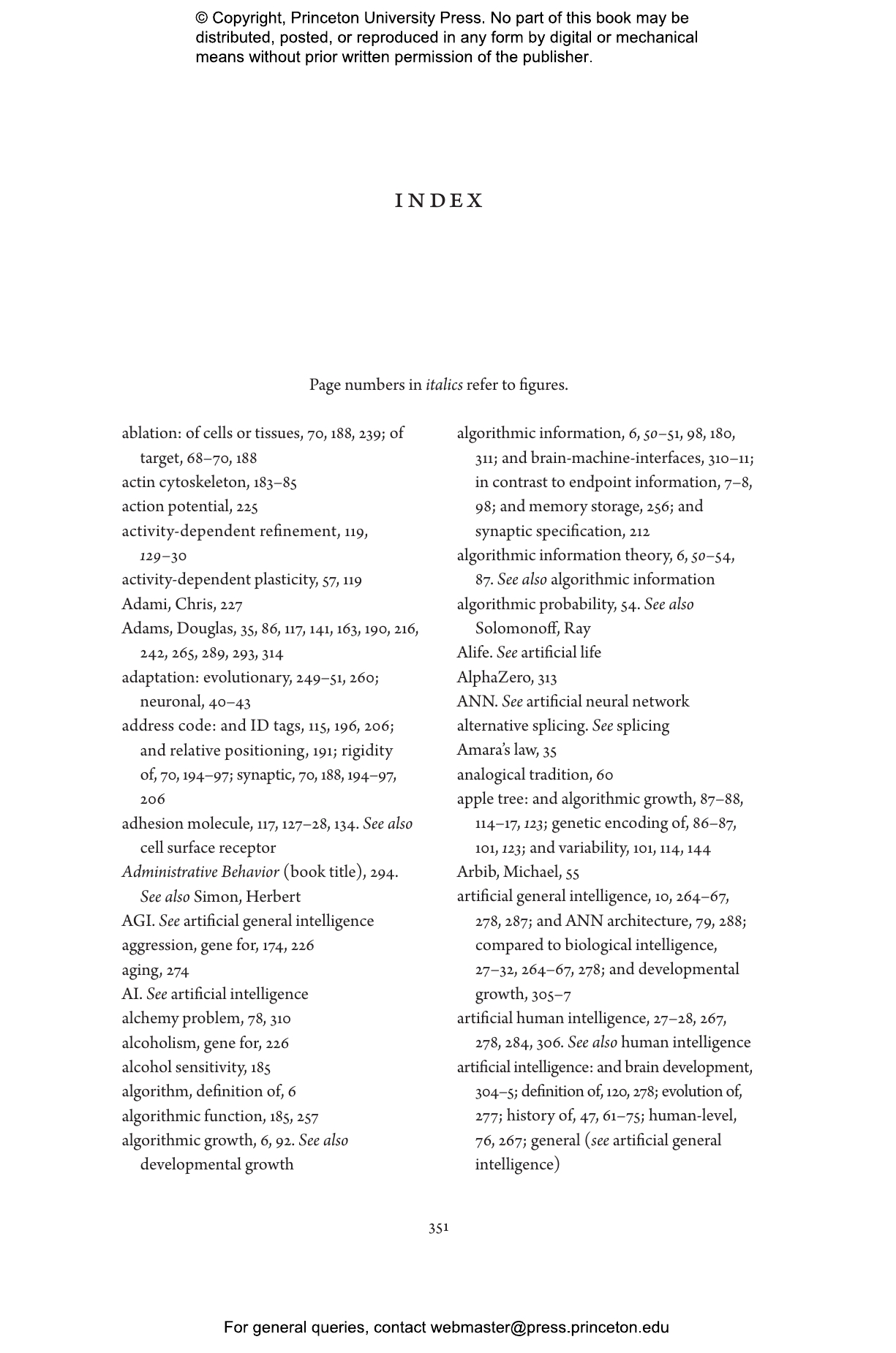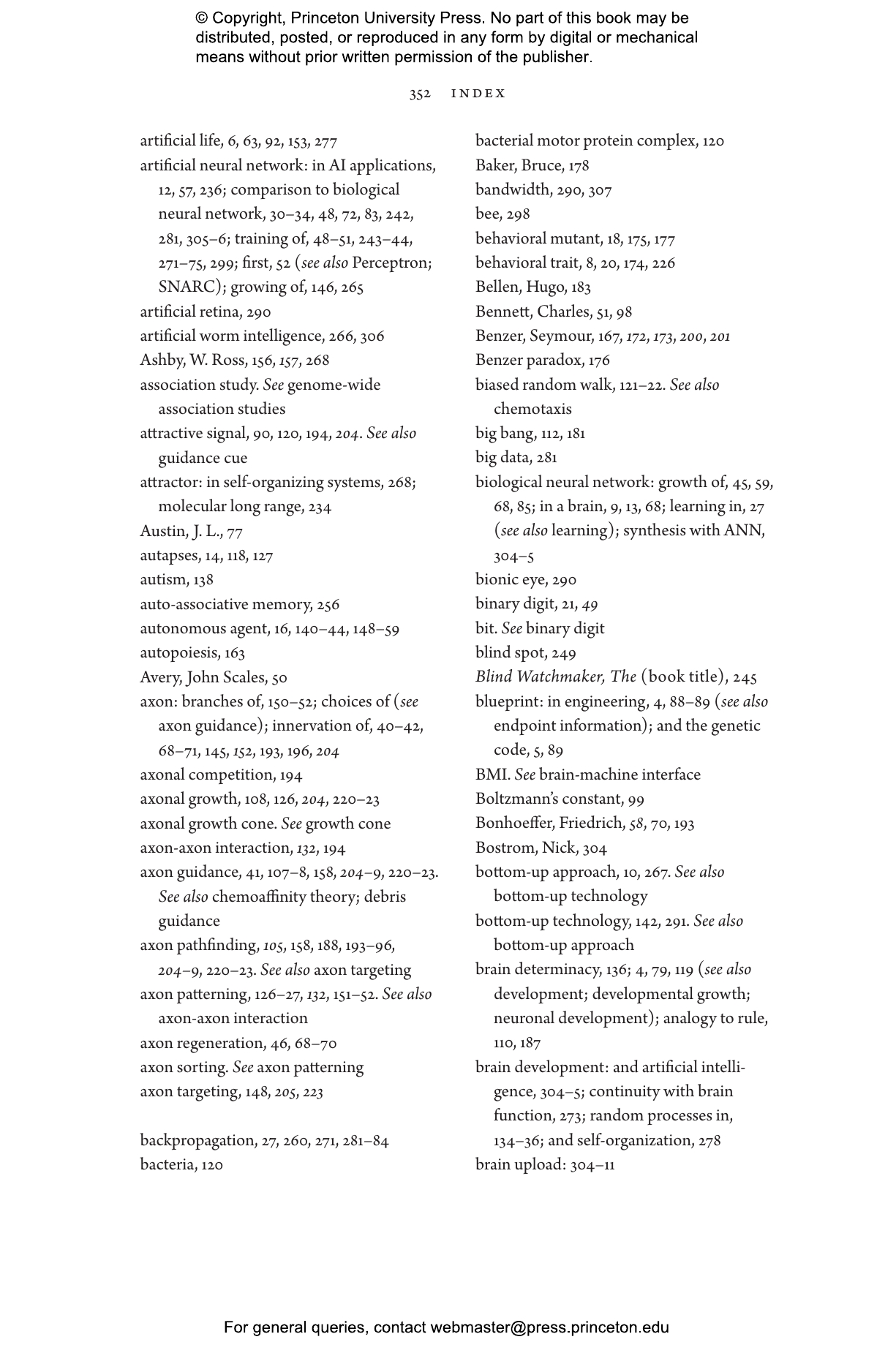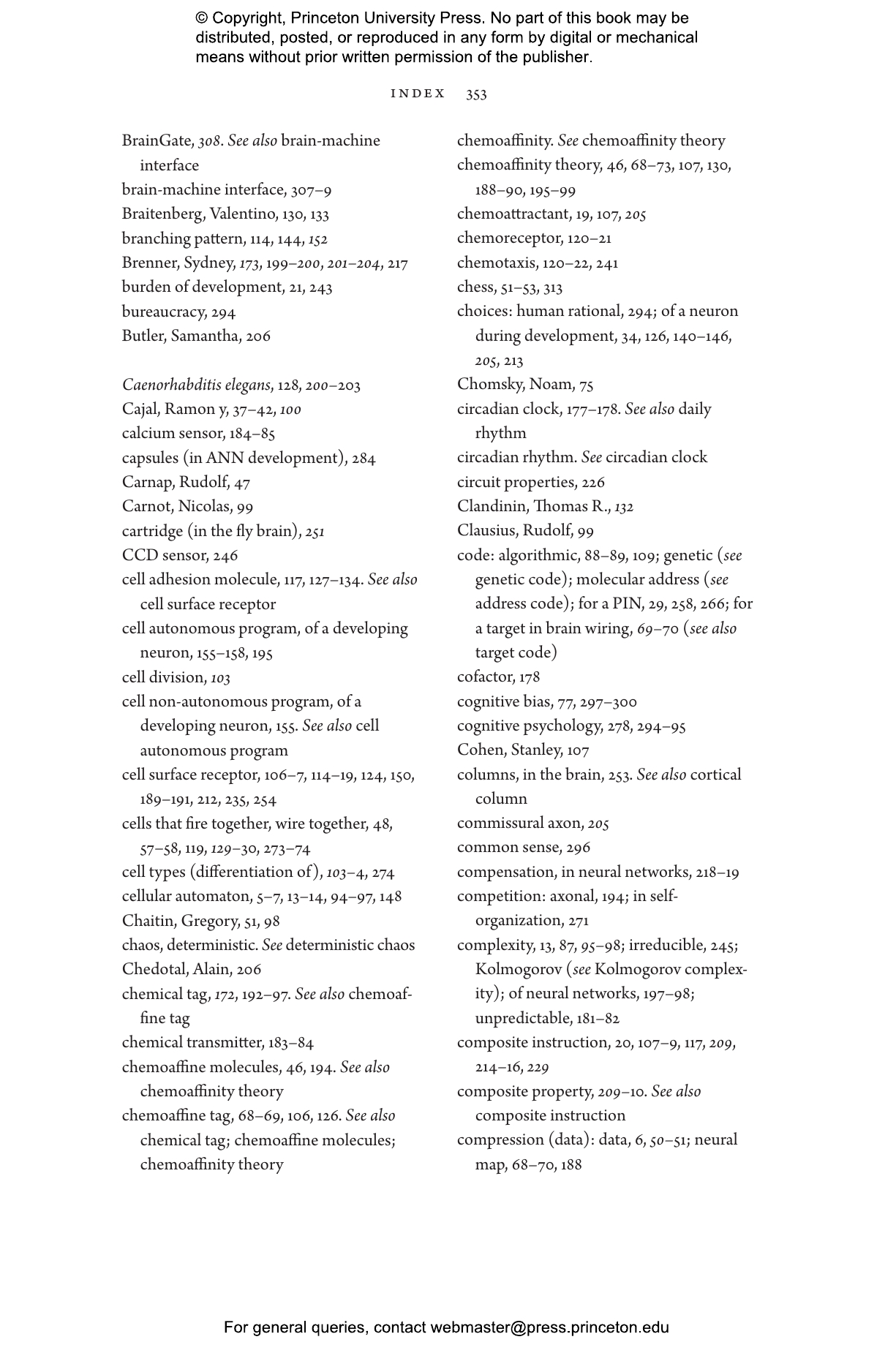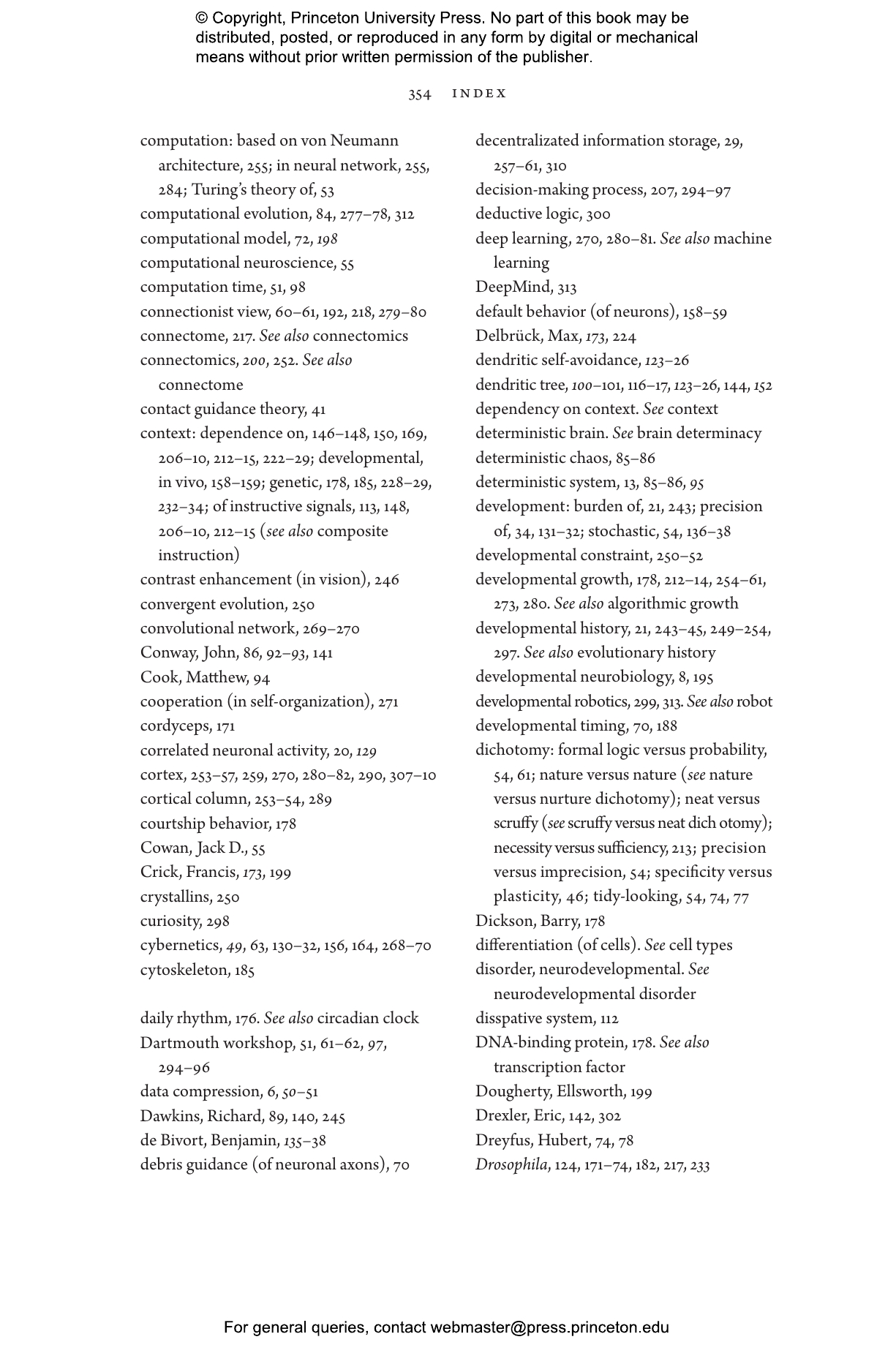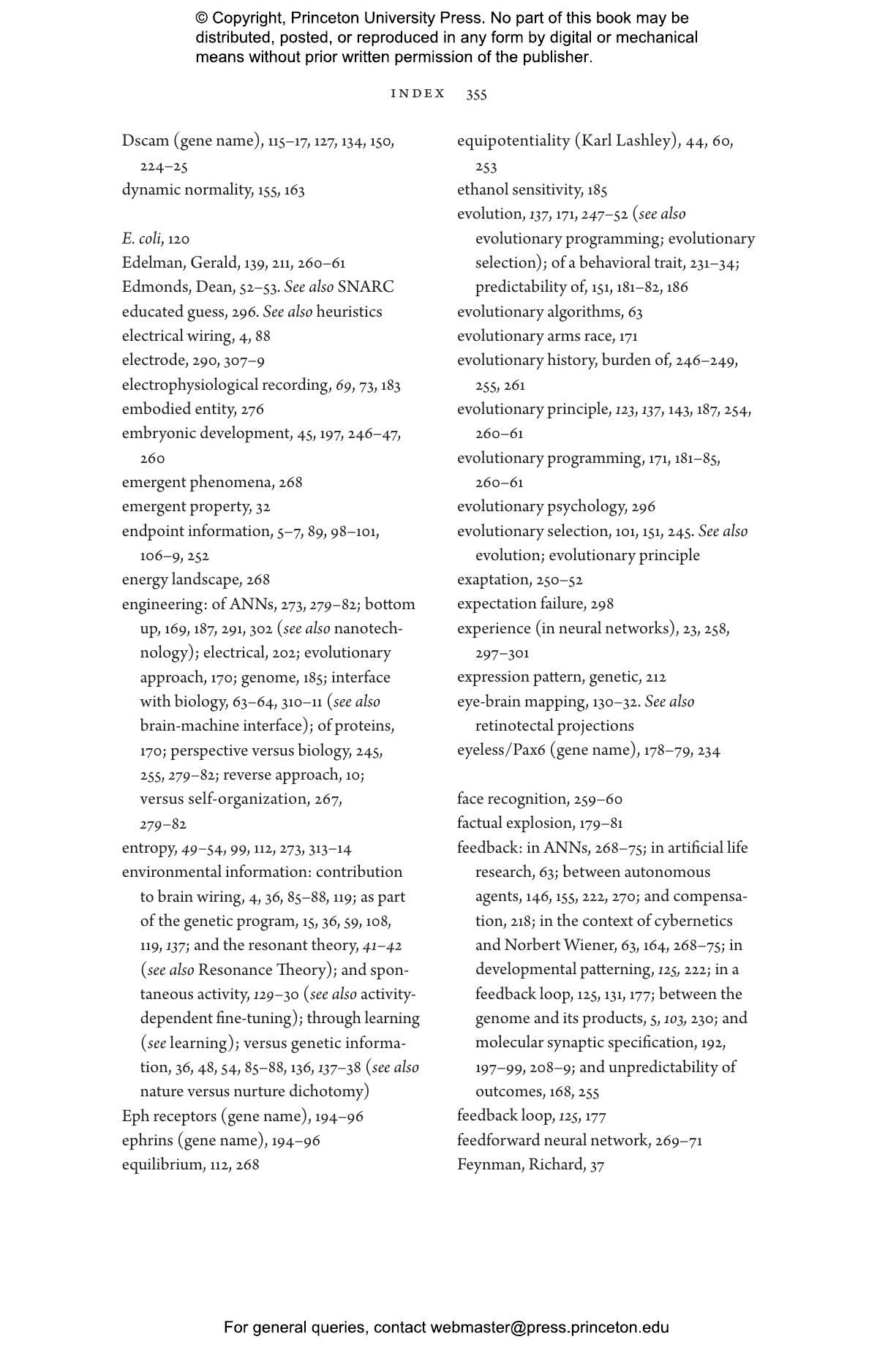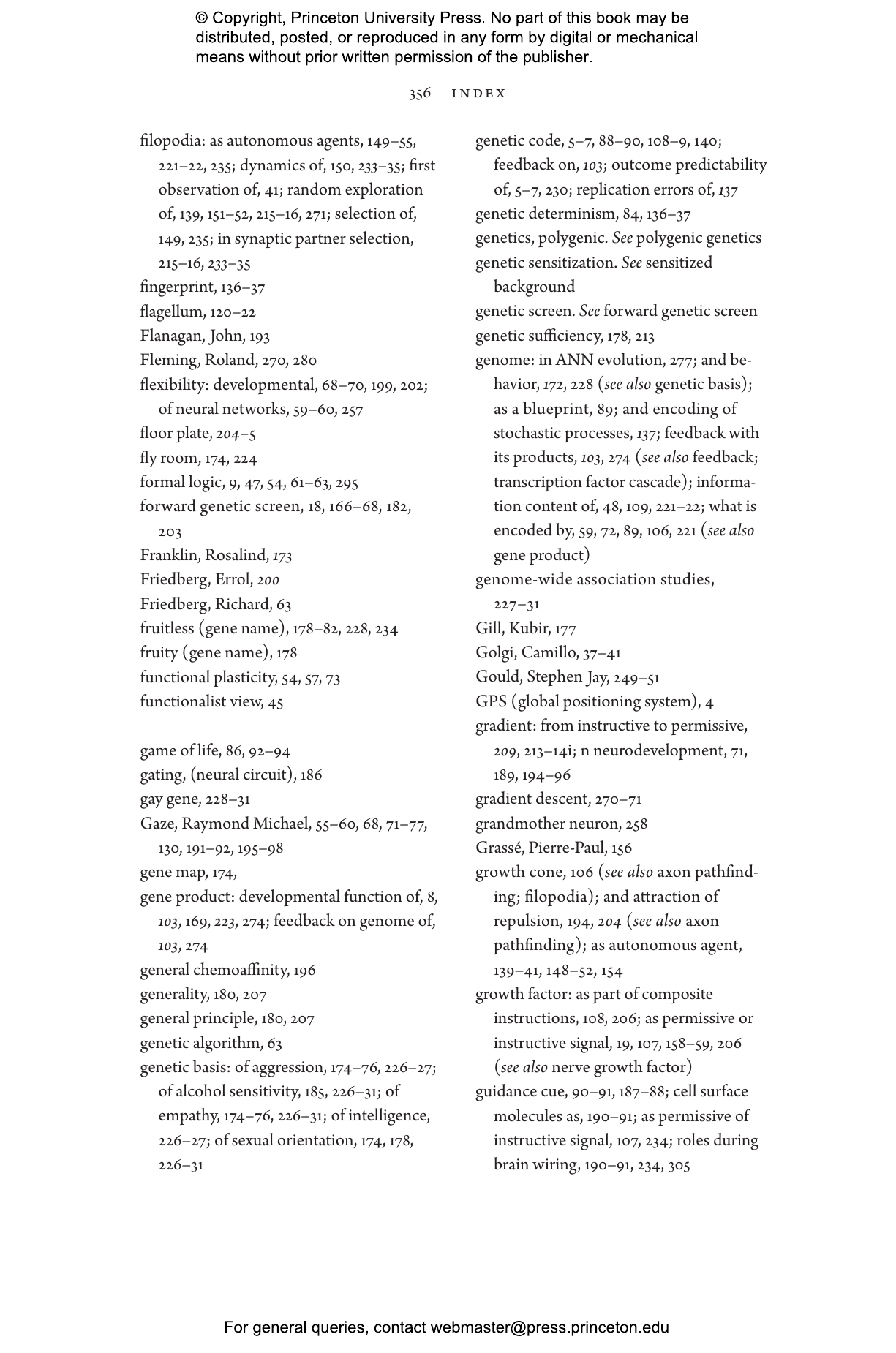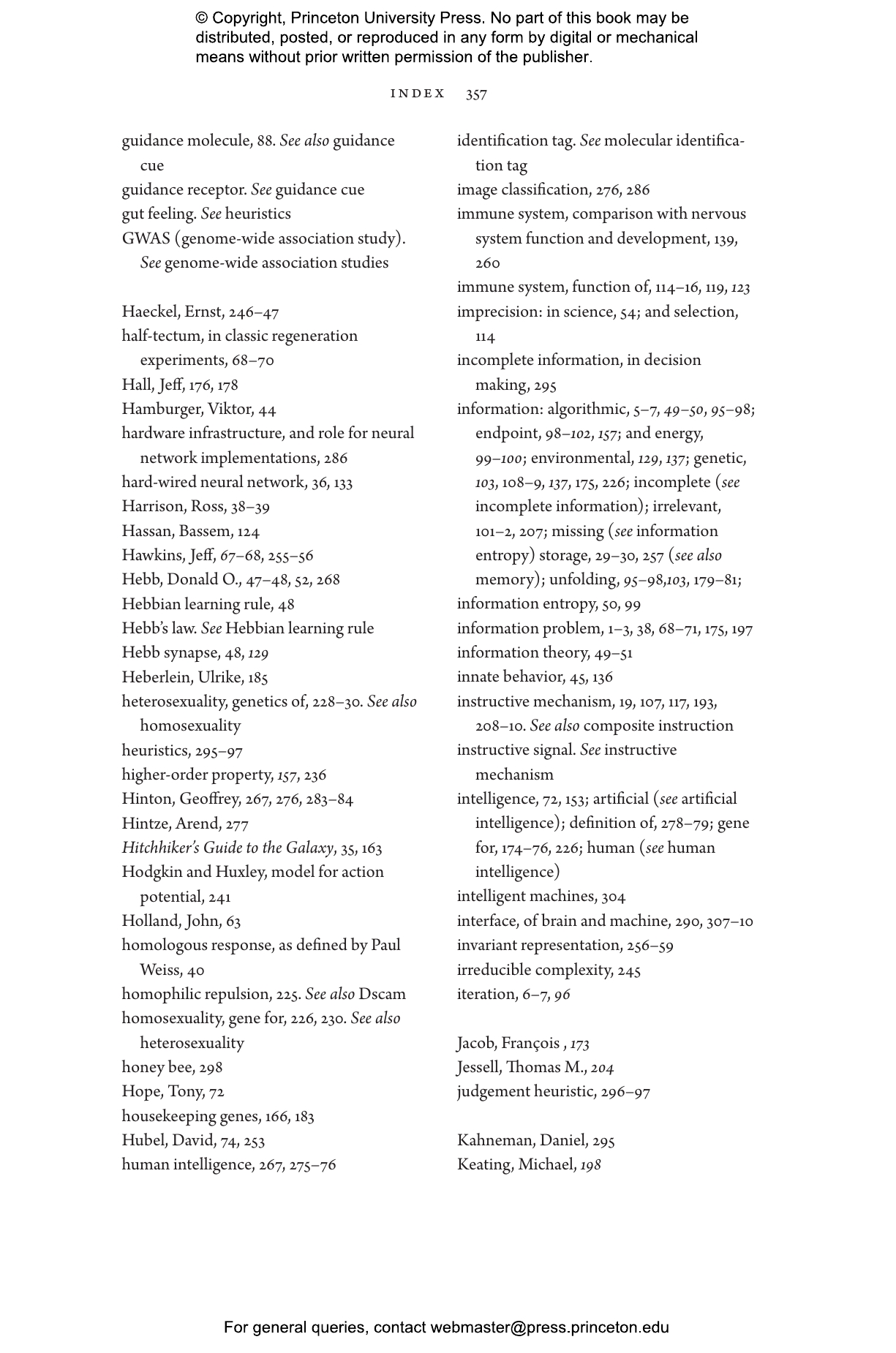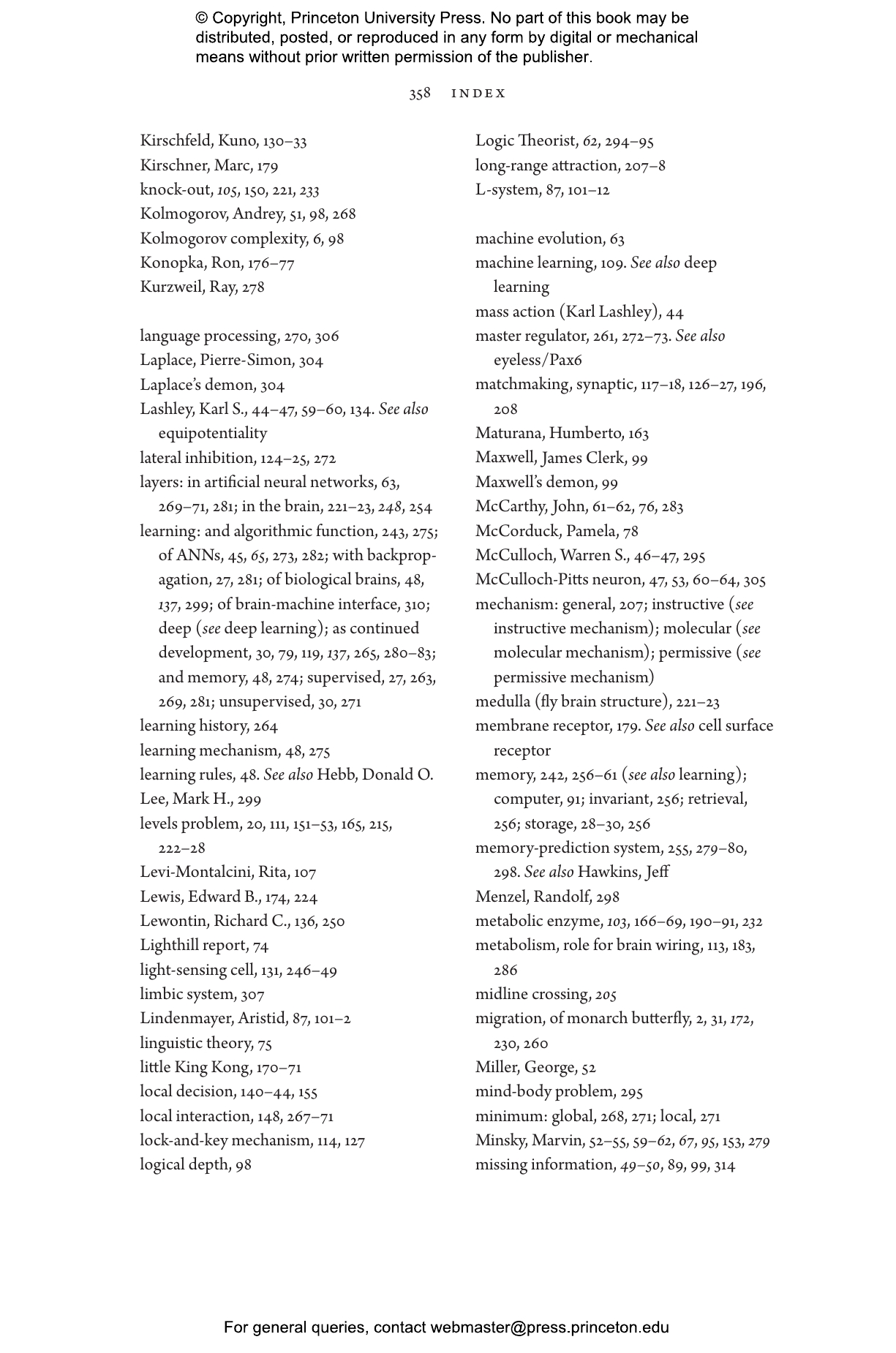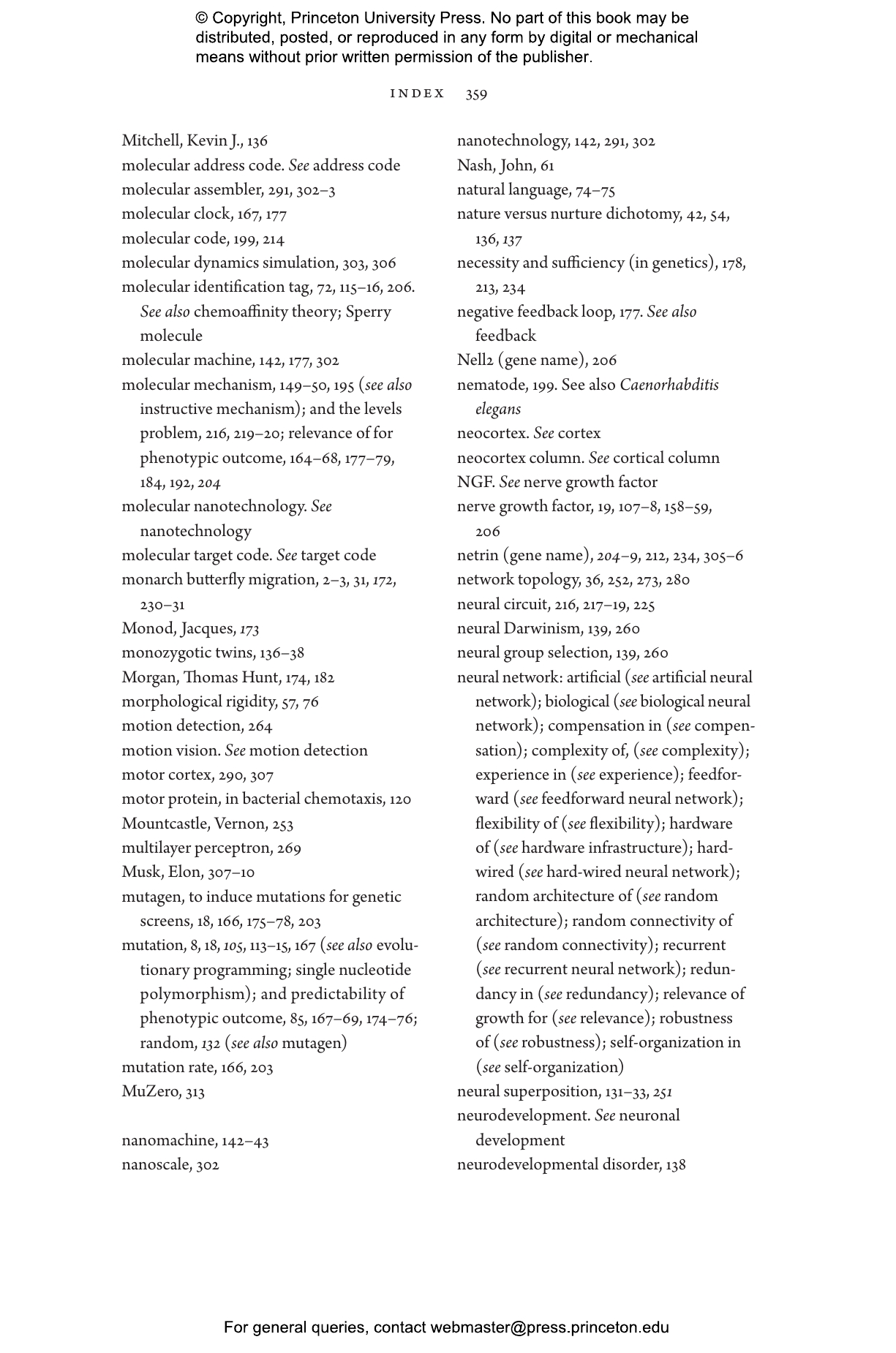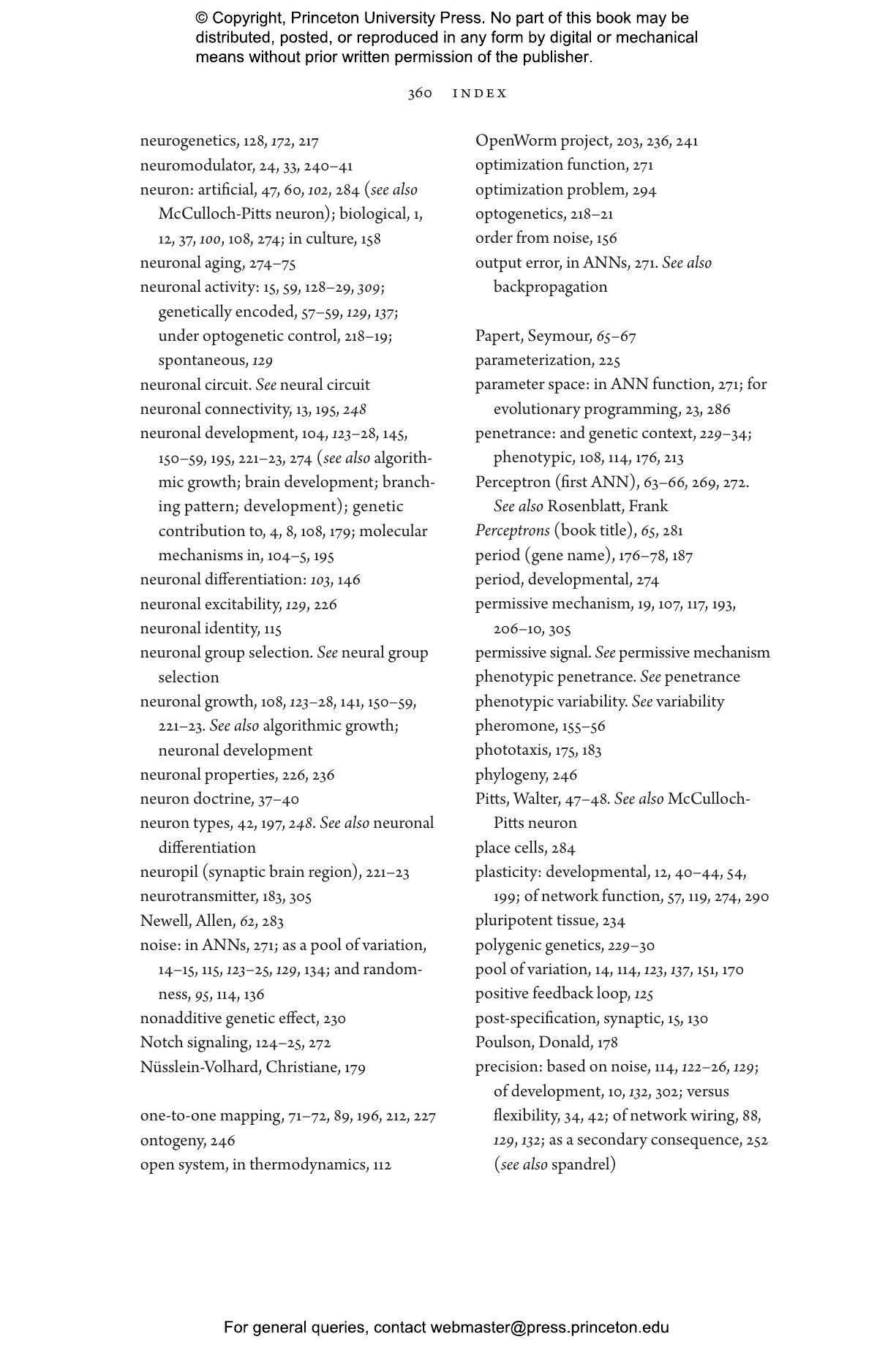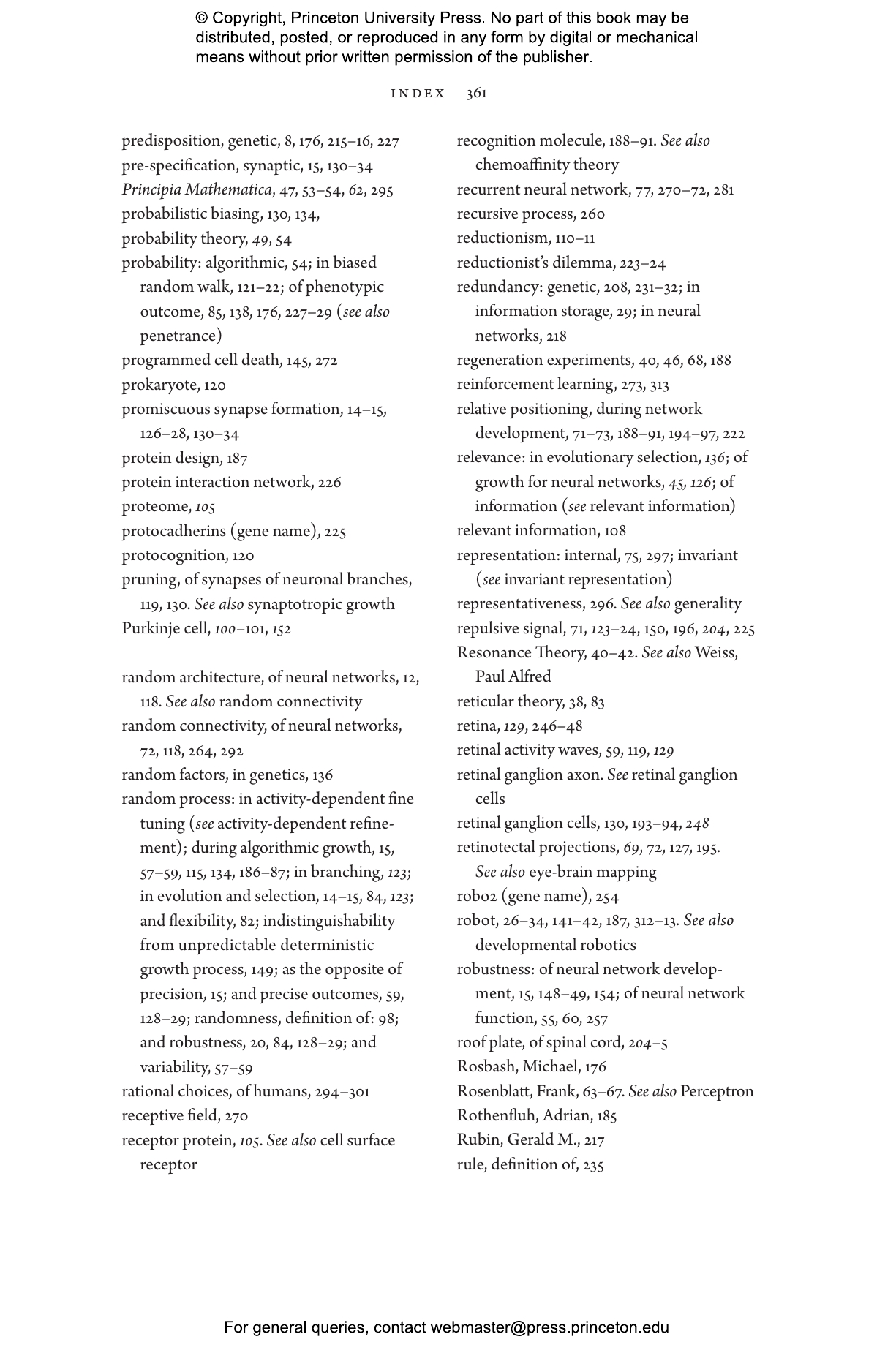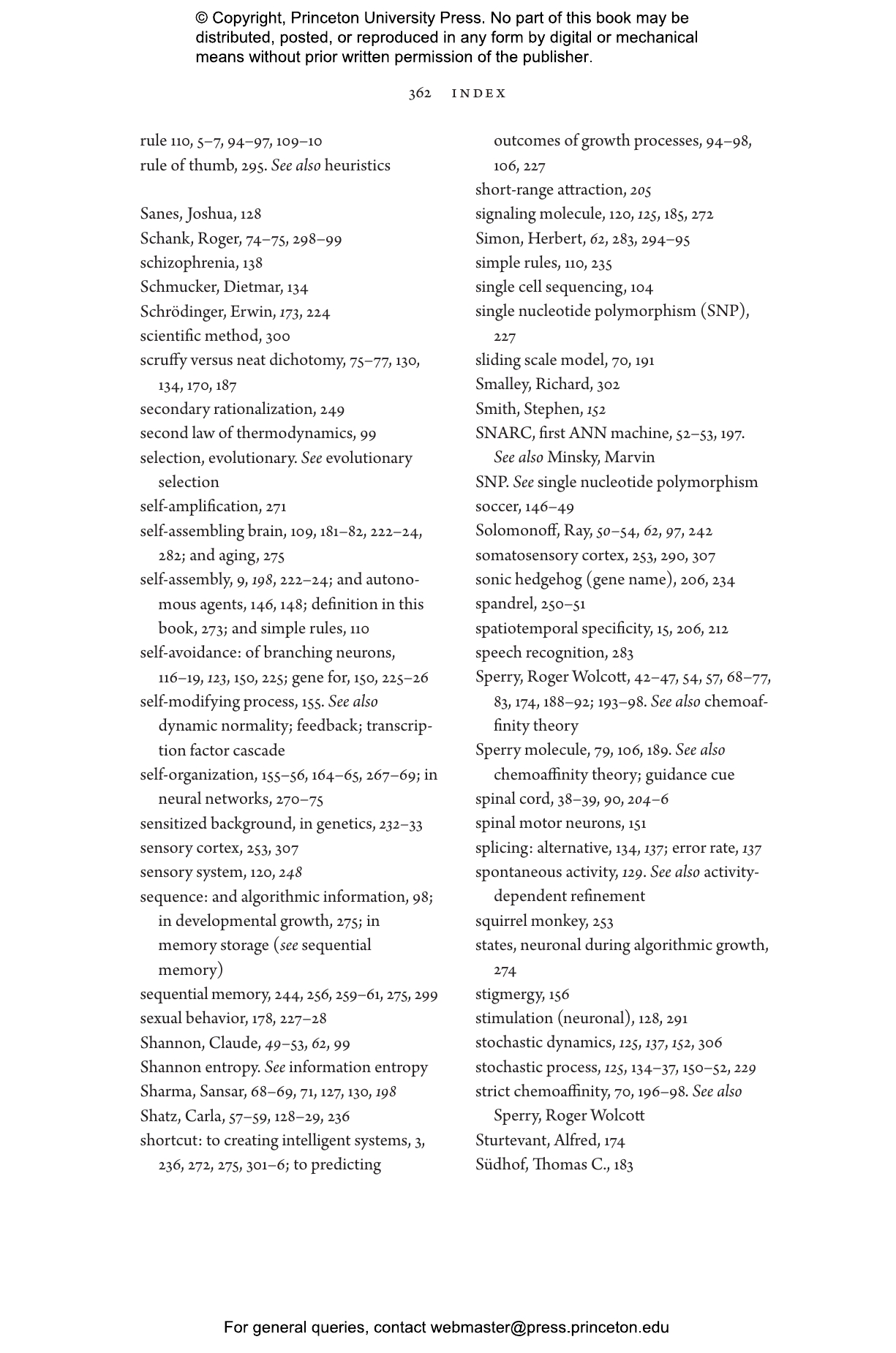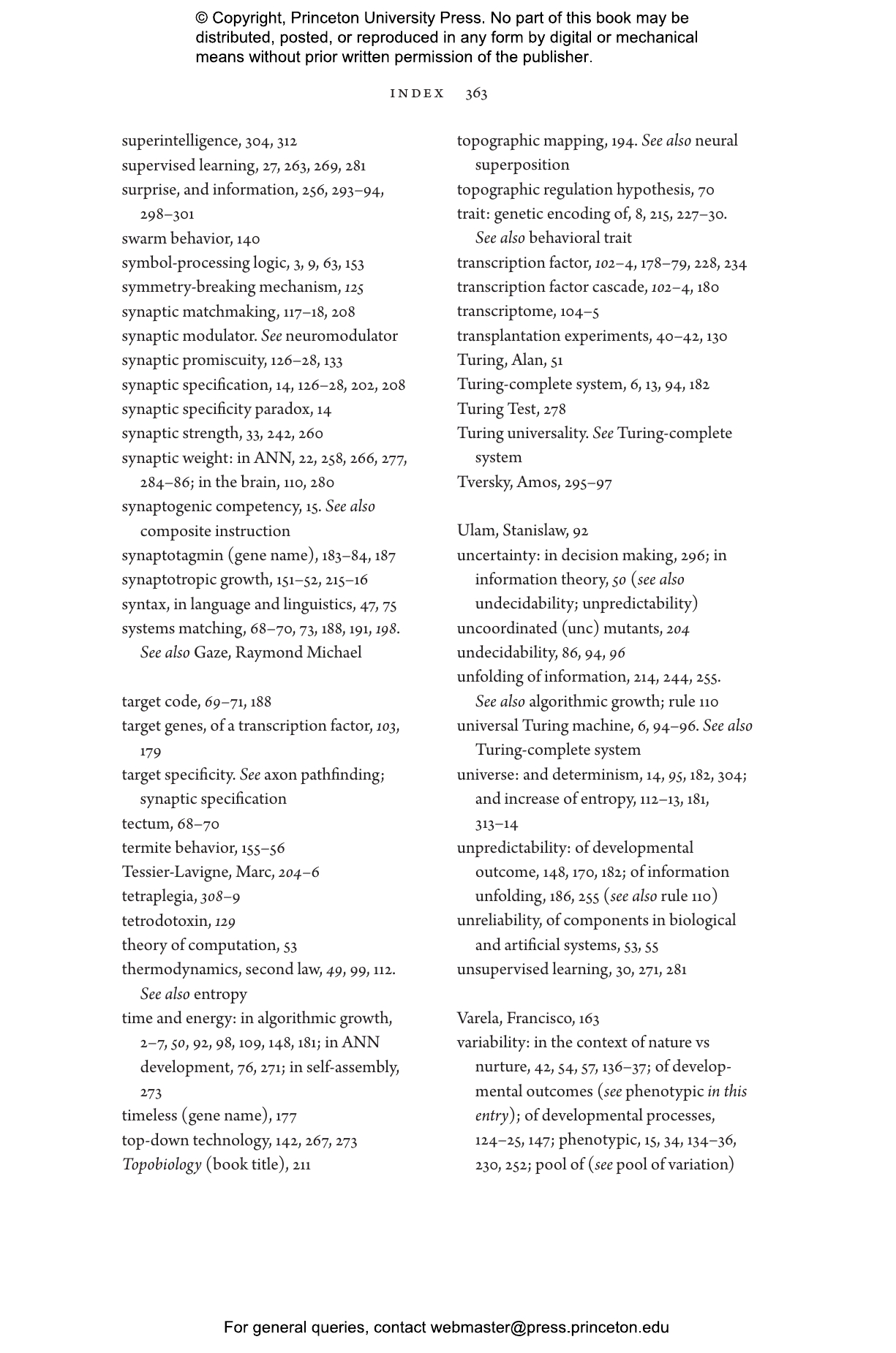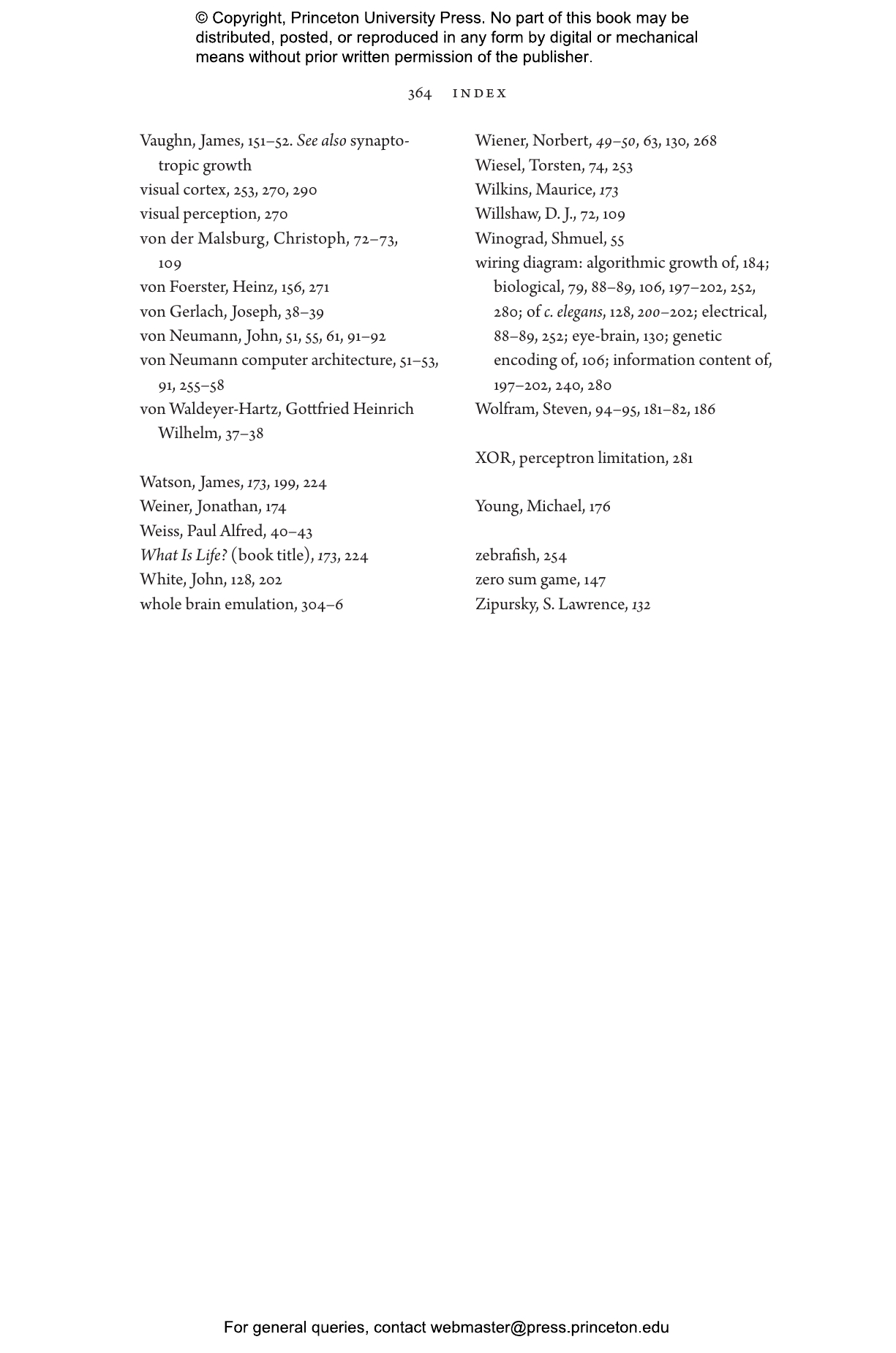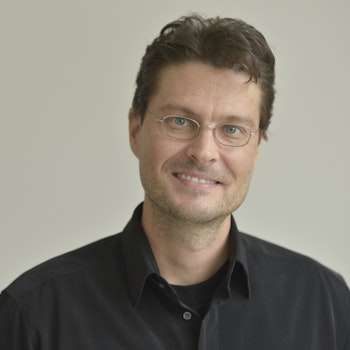How does a neural network become a brain? While neurobiologists investigate how nature accomplishes this feat, computer scientists interested in artificial intelligence strive to achieve this through technology. The Self-Assembling Brain tells the stories of both fields, exploring the historical and modern approaches taken by the scientists pursuing answers to the quandary: What information is necessary to make an intelligent neural network?
As Peter Robin Hiesinger argues, “the information problem” underlies both fields, motivating the questions driving forward the frontiers of research. How does genetic information unfold during the years-long process of human brain development—and is there a quicker path to creating human-level artificial intelligence? Is the biological brain just messy hardware, which scientists can improve upon by running learning algorithms on computers? Can AI bypass the evolutionary programming of “grown” networks? Through a series of fictional discussions between researchers across disciplines, complemented by in-depth seminars, Hiesinger explores these tightly linked questions, highlighting the challenges facing scientists, their different disciplinary perspectives and approaches, as well as the common ground shared by those interested in the development of biological brains and AI systems. In the end, Hiesinger contends that the information content of biological and artificial neural networks must unfold in an algorithmic process requiring time and energy. There is no genome and no blueprint that depicts the final product. The self-assembling brain knows no shortcuts.
Written for readers interested in advances in neuroscience and artificial intelligence, The Self-Assembling Brain looks at how neural networks grow smarter.
Peter Robin Hiesinger is professor of neurobiology at Freie Universität Berlin, where he teaches undergraduate and graduate students and leads a research laboratory and a multilab research consortium on neural networks.
"Hiesinger elegantly moves through a variety of topics, ranging from biological development to AI and ending with a discussion of the advances that deep neural networks have brought to the field of brain-machine interfaces."—Kamila Maria Jóźwik, Science
"Hiesinger suggests that instead of looking at the brain from an endpoint perspective, we should study how information encoded in the genome is transformed to become the brain as we grow. . . . The Self-Assembling Brain is organized as a series of seminar presentations interspersed with discussions between a robotics engineer, a neuroscientist, a geneticist, and an AI researcher. The thought-provoking conversations help to understand the views and the holes of each field on topics related to the mind, the brain, intelligence, and AI."—Ben Dickson, TechTalks
"For anyone interested in the brain, or AI, or any of the myriad of branches and subbranches of each, I would highly recommend this!"—Jonathan Shock, Mathemafrica
"The Self-Assembling Brain considers an interesting and timely topic—the relationship between what we know about how biological brains develop and the principles by which artificial intelligence networks are designed. Beginning with a fascinating historical debate, this book takes an ambitious look at a big and important area. I learned many things from new and diverse perspectives, which is exactly what I would expect from a book like this."—Kevin J. Mitchell, author of Innate
"Is the structure of the adult human brain a sufficient model for building artificially intelligent neural networks? Absolutely not is the message of The Self-Assembling Brain. Developmental processes are shown to be central to learning, both in the growth of the brain and continuing through in adult intelligence. This book could be a game changer."—Mark Lee, author of How to Grow a Robot
"This delightful book explores the underappreciated importance of algorithmic growth in understanding how biological systems develop and brains assemble. A significant contribution, The Self-Assembling Brain will interest readers in systems neuroscience, developmental neuroscience, and other areas of developmental biology, as well as computer scientists with an interest in biology."—Simon R. Schultz, Imperial College London
Brain and artificial intelligence research is ever evolving. For the latest news, explore selfassemblingbrain.com hosted by Peter Robin Hiesinger, Division of Neurobiology, Institute for Biology, Freie Universität Berlin and author of The Self-Assembling Brain


